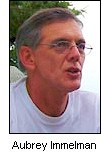 The purpose of the Unit for the Study of Personality in Politics Media Tipsheet is threefold. First, it offers political reporters looking for a fresh story angle a sometimes unique, often unconventional perspective on politics. Second, it serves as a repository for research-based political analysis. Analyses and predictions in the Tipsheet are, in effect, research hypotheses to be tested prospectively against actual event outcomes, which in turn serve to refine the guiding theory of personality and leadership that informed the analysis and prediction in the first place. Third, the Tipsheet aims to provide voters, reporters, and policymakers with politically unbiased, nonpartisan insights into aspects of political leaders’ and candidates’ personal character likely to impinge on their public lives, policy preferences, decisionmaking, and leadership prospects.
The purpose of the Unit for the Study of Personality in Politics Media Tipsheet is threefold. First, it offers political reporters looking for a fresh story angle a sometimes unique, often unconventional perspective on politics. Second, it serves as a repository for research-based political analysis. Analyses and predictions in the Tipsheet are, in effect, research hypotheses to be tested prospectively against actual event outcomes, which in turn serve to refine the guiding theory of personality and leadership that informed the analysis and prediction in the first place. Third, the Tipsheet aims to provide voters, reporters, and policymakers with politically unbiased, nonpartisan insights into aspects of political leaders’ and candidates’ personal character likely to impinge on their public lives, policy preferences, decisionmaking, and leadership prospects.
January 8, 2021
U.S. Capitol riot — Culpability, response, and risk assessment
Capitol attack leads Democrats to demand that Trump leave office (Peter Baker & Maggie Haberman, New York Times, Jan. 8, 2021) — [Speaker of the House] Pelosi and Senator Chuck Schumer of New York, the Democratic leader, called on [Vice President] Pence and the cabinet to invoke the 25th Amendment. But after the vice president refused to take their telephone calls, Ms. Pelosi told reporters that she would pursue impeachment if he did not act. “While it’s only 13 days left, any day can be a horror show for America,” Ms. Pelosi said, calling Mr. Trump’s actions on Wednesday a “seditious act.” “This president should not hold office one day longer,” said Mr. Schumer. …
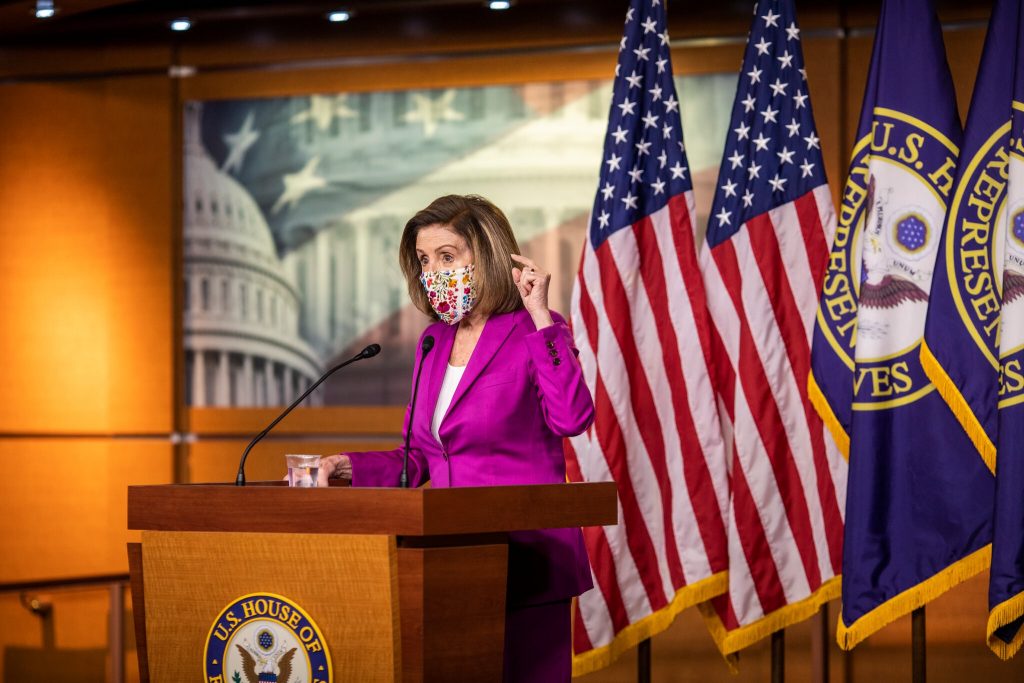
Speaker Nancy Pelosi called on Jan. 7, 2021 for President Trump to be stripped of his powers through the 25th Amendment or to be impeached again. (Photo credit: Jason Andrew / The New York Times)
Mob behavior and riots were foreseeable
The unintended consequences of President Donald Trump’s January 6 speech at the “Save America” rally and the subsequent “Stop the Steal” march could have been foreseen. Emotionally arousing his followers and then urging the crowd to march on the Capitol without providing structure or direction created a volatile situation, based on social-scientific knowledge regarding collective behavior — most notably emergent-norm theory. According to social scientists Ralph Turner and Lewis Killian (1957), crowds begin as collectivities composed of people with mixed interests and motives. In the case of less stable crowds — such as a large collective of demonstrators or protesters — norms may be vague and ambiguous, as when one person decides to break the glass windows of a storefront and observers join in and start looting; new, increasingly polarized, norms rapidly emerge and many people are caught up in those escalating norms even though their actions may be at odds with their typical social behavior.
Impeachment would be shortsighted and counterproductive
If there is a legitimate national security interest in restraining or incapacitating President Trump, impeachment may well be one of the worst interventions to diminish the perceived threat. If indeed the president is psychologically so unstable as to pose an imminent threat to public safety and social order, making him feel cornered and under siege would magnify, not mitigate, the potential threat.
——————————————
Update: January 12, 2021
Information has emerged that the attack on the Capitol was planned prior to the events of January 6, suggesting that collective behavior — specifically crowd psychology as conceptualized by emergent-norm theory, was not the primary driver of the mob behavior following the president’s rally:
FBI report warned of ‘war’ at Capitol, contradicting claims there was no indication of looming violence (Devlin Barrett & Matt Zapotosky, Washington Post, Jan. 12, 2021) — A situational information report approved for release the day before the U.S. Capitol riot painted a dire portrait of dangerous plans. … “As of 5 January 2021, FBI Norfolk received information indicating calls for violence in response to ‘unlawful lockdowns’ to begin on 6 January 2021 in Washington, D.C.,” the document says. “An online thread discussed specific calls for violence to include stating ‘Be ready to fight. Congress needs to hear glass breaking, doors being kicked in, and blood from their BLM and Pantifa slave soldiers being spilled. Get violent. Stop calling this a march, or rally, or a protest. Go there ready for war. We get our President or we die. NOTHING else will achieve this goal.” …
——————————————
Update: January 13, 2021
Trump impeached for inciting insurrection
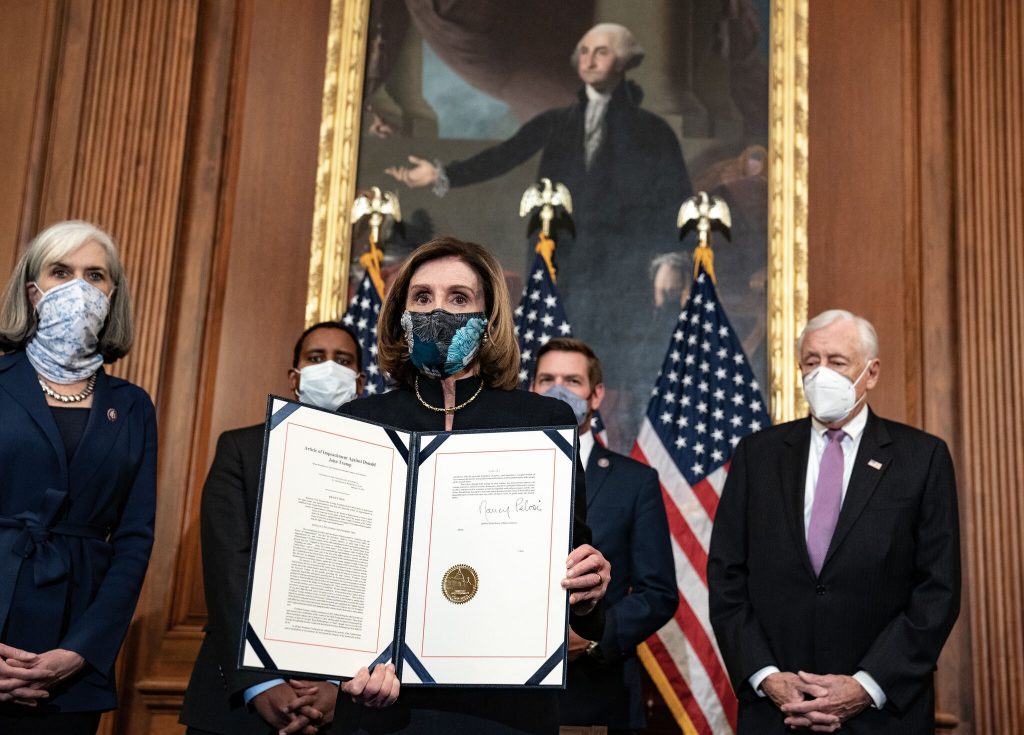
Speaker Nancy Pelosi with the article of impeachment, Jan. 13, 2021. (Photo credit: Anna Moneymaker / The New York Times)
July 16, 2020

Aubrey Immelman presents his paper on “The Personality Profile and Leadership Style of U.S. President Donald J. Trump in Office” at the 43rd Annual Scientific Meeting of the International Society of Political Psychology, July 16, 2020.
The Personality Profile and Leadership Style of U.S. President Donald J. Trump in Office. Paper presented at the 43rd Annual Scientific Meeting of the International Society of Political Psychology, Berlin, Germany, July 14-16, 2020. Abstract and link for full-text (71 pages; PDF) download at Digital Commons: http://digitalcommons.csbsju.edu/psychology_pubs/129/
Annie Griebie briefly explains the conceptual framework, methodology, and results of her assessment of President Donald Trump’s personality as revealed in office. (9:39)
February 6, 2020
Sen. Mitt Romney (R-Utah) was the only member of the Republican Party to vote with Democratic senators to convict President Donald Trump of abuse of power in a 52-48 not guilty vote after harshly criticizing Trump in his Senate floor speech announcing his intended vote.
Romney asserted that “the president committed an act so extreme and egregious that it rises to the level of a high crime and misdemeanor”; accused him of being “guilty of an appalling abuse of public trust” for what he called “a flagrant assault on our electoral rights, our national security, and our fundamental values”; and concluded that “corrupting an election to keep oneself in office is perhaps the most abusive and destructive violation of one’s oath of office” that he could imagine.
This was not the first time Romney publicly lambasted Trump. In an op-ed published in the Washington Post a year earlier, Romney wrote that Trump had “not risen to the mantle of the office,” adding that a president “should demonstrate the essential qualities of honesty and integrity, and elevate the national discourse with comity and mutual respect.”
Similarly, Romney sharply rebuked the president’s actions outlined in special counsel Robert Mueller’s report, saying, “I am sickened at the extent and pervasiveness of dishonesty and misdirection by individuals in the highest office of the land, including the president,” implying Trump had “strayed from the aspirations and principles of the founders.”
Granted, motives can be complex and difficult to discern, yet Romney’s personality profile offers at least a partial glimpse into his underlying motivation for bucking the GOP party line with his impeachment vote.
A psychological study of Mitt Romney conducted at the Unit for the Study of Politics during Romney’s 2012 presidential campaign revealed that “Romney’s primary personality pattern was … Conscientious/dutiful, complemented by secondary Dominant/asserting, Ambitious/confident, and Accommodating/cooperative features and a minor Retiring/reserved tendency” and characterized him as quintessentially “prudent, proper, dignified, dependable, and more principled than most personality types.”
Regarding his primary personality pattern of conscientiousness, Romney’s political-psychological profile depicts him as a principled person who does his best to uphold conventional rules and standards and to follow regulations closely, with a tendency to be intolerant of deviance and judgmental of those fail to adhere to those norms.
As stated in Romney’s profile, conscientious individuals “tend to follow standards from which they hesitate to deviate, attempt to act in an objective and rational manner, and decide matters in terms of what they believe is right.” They are often religious, and maintaining their integrity “ranks high among their goals” while “voicing moral values gives them a deep sense of satisfaction.”
As Romney asserted in his Senate floor speech:
As a senator-juror, I swore an oath before God to exercise impartial justice. I am profoundly religious. My faith is at the heart of who I am. I take an oath before God as enormously consequential.
In summary, Romney’s personality profile contains the following observations across the matrix of attribute domains comprising his overall personality composite:
- Expressive behavior: scrupulous in matters of morality and ethics, but may strike others as prudish, moralistic, and condescending. (p. 11)
- Interpersonal conduct: unbending in his relations with subordinates [which Trump arguably embodies in his capacity as a defendant in an impeachment trial], insisting they adhere to personally established rules and methods. (p. 11)
- Cognitive style: concerned with matters of propriety and tends to be rigid about regulations and procedures. (p. 11)
- Mood/temperament: dignified, serious minded, solemn demeanor. (p. 12)
- Self-image: values aspects of himself that exhibit virtue and moral rectitude. (p. 12)
- Morphologic organization/ego-defense mechanism: public facade of conformity and propriety may mask an undercurrent of repressed urges toward self-assertion and defiance. (p. 13)
Finally, the section on leadership implications in the report of Romney’s political personality concludes that, in his policy choices, consensus building likely plays a secondary role to the implementation of the “morally correct” policy. (p. 17)
Objective assessment of the psychological motives underlying Romney’s “guilty” impeachment vote dictates that he was simply acting in character and in accordance with his deeply held personal and religious values. However, that determination belies the probability that some of Romney’s Republican Senate colleagues possess a similar personality profile and set of values.
What, then, could account for Romney’s dissenting vote?
One clue may be implicit in Trump’s public humiliation of Romney, whom the president called “a pompous ‘ass’” who had been “fighting me from the beginning, except when he begged me for my endorsement for his Senate run … and when he begged me to be Secretary of State.”
In that regard, it’s notable that Romney’s personality profile is suggestive of an individual more likely to nurse grudges than most. From that perspective, an alternative explanation for Romney’s vote might be that he gave the president a taste of his own kind of quid pro quo.
Cited report
The Political Personality of 2012 Republican Presidential Candidate Mitt Romney. Paper presented by Aubrey Immelman at the 35th Annual Scientific Meeting of the International Society of Political Psychology, Chicago, July 6–9, 2012. Abstract and link for full-text (35 pages; PDF) download at Digital Commons: http://digitalcommons.csbsju.edu/psychology_pubs/98/
(Scroll down at above link)
January 6, 2020
How will President Trump respond to Iranian retaliation for the killing of Islamic Revolutionary Guard Corps Quds Force commander Gen. Qasem Soleimani?
The two guiding principles of behavioral forecasting based on psychological profiling are:
- Personality directs — and therefore predicts — behavior.
- The best predictor of future behavior is past behavior.
Based on (1) empirical studies of Donald Trump’s personality profile and leadership style conducted at the Unit for the Study of Personality in Politics and (2) rational-intuitive inference derived from President Trump’s observed behavior in office, the following general expectancies present themselves with reference to Trump’s likely response to Iran’s anticipated retaliation for the targeted killing of Islamic Revolutionary Guard Corps Quds Force commander Gen. Qasem Soleimani.
Key personality traits driving President Trump’s behavior
Donald Trump is bold, self-assured, and levelheaded under pressure and in the face of adversity; is a dramatic attention‑getter more inclined to precipitous action than to indecision; enjoys the power to take charge, evoke respect, and seeing that the job gets done; is tough, competitive, and unsentimental; and is willing to flout tradition, acting autonomously in accordance with his personal goals and preferences.
Relevant indicators from President Trump’s past behavior
Donald Trump prides himself on “promises made, promises kept” and completing projects on- or ahead of schedule; is motivated to extricate the United States from “endless wars”; is driven to project military power to buttress U.S. prestige and national security; and is generally explicit in stating his intent.
General expectancies for President Trump’s response to Iranian reprisal
- President Trump is highly unlikely to order a full-scale war such as George H.W. Bush’s Gulf War (1991) or George W. Bush’s invasions of Afghanistan (2001) and Iraq (2003).
- President Trump is unlikely to escalate the current standoff with Iran in the absence of revenge operations by the Iranian regime or its proxies.
- President Trump is likely to respond proportionately to Iranian retaliation outside the United States, provided no U.S. nationals are harmed (but may incrementally escalate counterattacks if revenge attacks persist).
- President Trump is likely to respond disproportionately to Iranian retaliation outside the United States if U.S. nationals are killed or injured.
- President Trump is likely to respond with overwhelming force to attacks by Iran or its proxies within the United States or its territories.
Catalog of topical tweets by Donald J. Trump
Iran never won a war, but never lost a negotiation!
— Donald J. Trump (@realDonaldTrump) January 3, 2020
….of PROTESTERS killed in Iran itself. While Iran will never be able to properly admit it, Soleimani was both hated and feared within the country. They are not nearly as saddened as the leaders will let the outside world believe. He should have been taken out many years ago!
— Donald J. Trump (@realDonaldTrump) January 3, 2020
Iran is talking very boldly about targeting certain USA assets as revenge for our ridding the world of their terrorist leader who had just killed an American, & badly wounded many others, not to mention all of the people he had killed over his lifetime, including recently….
— Donald J. Trump (@realDonaldTrump) January 4, 2020
….hundreds of Iranian protesters. He was already attacking our Embassy, and preparing for additional hits in other locations. Iran has been nothing but problems for many years. Let this serve as a WARNING that if Iran strikes any Americans, or American assets, we have…..
— Donald J. Trump (@realDonaldTrump) January 4, 2020
….targeted 52 Iranian sites (representing the 52 American hostages taken by Iran many years ago), some at a very high level & important to Iran & the Iranian culture, and those targets, and Iran itself, WILL BE HIT VERY FAST AND VERY HARD. The USA wants no more threats!
— Donald J. Trump (@realDonaldTrump) January 4, 2020
They attacked us, & we hit back. If they attack again, which I would strongly advise them not to do, we will hit them harder than they have ever been hit before! https://t.co/qI5RfWsSCH
— Donald J. Trump (@realDonaldTrump) January 5, 2020
The United States just spent Two Trillion Dollars on Military Equipment. We are the biggest and by far the BEST in the World! If Iran attacks an American Base, or any American, we will be sending some of that brand new beautiful equipment their way…and without hesitation!
— Donald J. Trump (@realDonaldTrump) January 5, 2020
These Media Posts will serve as notification to the United States Congress that should Iran strike any U.S. person or target, the United States will quickly & fully strike back, & perhaps in a disproportionate manner. Such legal notice is not required, but is given nevertheless!
— Donald J. Trump (@realDonaldTrump) January 5, 2020
Update: January 8, 2020
Iranian foreign minister Javad Zarif announces standdown after “proportionate” retaliation
Iran took & concluded proportionate measures in self-defense under Article 51 of UN Charter targeting base from which cowardly armed attack against our citizens & senior officials were launched.
We do not seek escalation or war, but will defend ourselves against any aggression.
— Javad Zarif (@JZarif) January 8, 2020
Donald Trump takes the off-ramp in Iran confrontation (Analysis by Chris Cillizza, CNN, Jan. 8, 2020) — President Donald Trump decided Wednesday that taking his foot off the gas in the rapidly escalating conflict between the United States and Iran was the right move. … Trump [delivered] the message that, despite Iran launching more than a dozen missile strikes at two sites in Iraq less than 24 hours ago, he was comfortable with calling an end to the outright hostilities. … He added: “Iran appears to be standing down, which is a good thing for all parties and a good thing for the world.” … Trump’s measured tone on Wednesday was a striking contrast to his approach to the Iranians just days ago on Twitter. … It’s not clear what had changed Trump’s mind — and tone — over the days between those tweets and his address on Wednesday. Perhaps it was that the missile strikes resulted in no deaths. Or that the Iranians had given Iraq a heads up that the strikes were coming. Or that Trump’s administration has grown increasingly certain that Iran purposely targeted sites and areas where no one would be killed as a way to retaliate for the killing of Iranian commander Qasem Soleimani without starting a broader conflict. …
Update: November 27, 2020
Mohsen Fakhrizadeh, Iran’s top nuclear scientist — considered one of the masterminds of Iran’s nuclear program — has been killed in an apparent assassination that the country’s foreign minister linked to Israel.
Several top-level Iranian officials have condemned the attack and threatened to retaliate.
Iran has yet to respond, beyond condemnation, to the killing of Iranian military commander Qassem Soleimani earlier this year.
Update: December 23, 2020
December 15, 2019
Responding to Kim Jong-un’s “Christmas surprise”
On December 14 the New York Times reported:
A second test [at the Sohae Satellite Launching Station] of what appeared to be an advanced missile engine, part of what North Korea said on Saturday was part of a “reliable strategic nuclear deterrent,” left little doubt that the country is moving quickly toward resuming the program that led to a crisis with Washington two years ago. … It was the second such test in a week, and came after weeks of increasingly vocal attempts to press the United States into further talks and new concessions. … American analysts and intelligence experts said they believe the ground test … was intended as a signal that the country could soon resume testing of an intercontinental ballistic missile.
Analysts have speculated an ICBM test might occur after the end of December, a deadline Kim Jong-un imposed for the U.S. to resume negotiations and provide sanctions relief.
In its report, the New York Times quotes Pak Jong-chon, chief of the general staff of the North Korean People’s Army, as saying: “We should be ready to cope with political and military provocations of the hostile forces, and be familiar with both dialogue and confrontation” and that the U.S. and its allies would “spend the year-end in peace only when they hold off any words and deeds rattling us” — signaling that amid stalled diplomacy “the voice of North Korea’s hard-line military was rising,” according to Cheong Seong-chang, vice president of research planning at South Korea’s Sejong Institute.
In conjunction with the North Korean foreign ministry’s veiled threat in early December that North Korea was preparing a surprise “Christmas gift” for the United States, the latest rhetoric emanating from the DPRK sounds ominous.
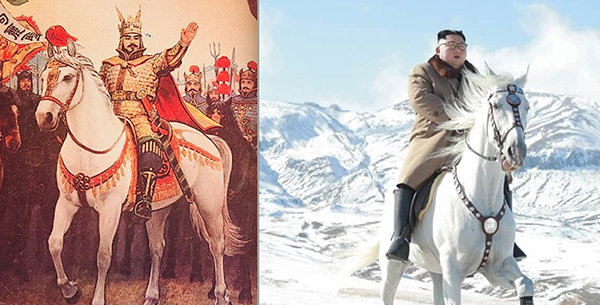
Left: Image of King Tongmyong from a North Korean book. Right: Image of Kim Jong-un, courtesy of KCNA. (Photo composite by Jean Lee /The Wilson Center)
Analysis: How should the U.S. respond?
- In planning its response, the U.S. should exercise caution in ascertaining the personal policy preferences of Kim Jong-un and distinguishing between that and the intent of hardliners in the DPRK military establishment.
- To the extent that Kim is losing ground in his grip on power vis-à-vis the top military leadership, the U.S. could strengthen Kim’s hand by giving due consideration to the resumption of personal diplomacy between the two nations’ leaders as a complement to the continuation of working-level talks.
- It would be prudent to delay any significant response or intervention until after evaluating the tone, and learning more about the details, of Kim’s policy options in his annual New Year’s Day speech.
- In the context of the central role of personal diplomacy in the US-DPRK nuclear negotiations, consider that with the specter of impeachment and the uncertainty of Donald Trump’s reelection as president, Kim might be reluctant to strike a deal at the present juncture, preferring to adopt a wait-and-see attitude; thus, it would be prudent to exercise patience and avoid any abrupt policy reversals.
August 27, 2019
Former Duke psychiatrist calls Trump “as destructive … as Hitler, Stalin, and Mao”
The former chair of psychiatry at Duke University, Allen Frances, MD, told host Brian Stelter on CNN’s “Reliable Sources” (Aug. 25, 2019) that President Donald Trump “is as destructive a person in this century as Hitler, Stalin, and Mao were in the last century” and “may be responsible for many more million deaths than they were [because of his ‘crazy’ policies].”
Dr. Frances’s view is more of a personal political opinion than a professional psychiatric assessment, so it does not warrant critical evaluation in accordance with the USPP research mission.
May 3, 2019
A 2020 reelection strategy for Donald Trump
CNN’s “The Point with Chris Cillizza” reports:
Trump’s best chance at winning would be to cease issuing statements — or tweets — about anything other than the economy. …
[S]uch an extreme approach to his public pronouncements would … give Trump the best chance top bridge the current chasm between people [56%] who think he is doing a good job on the economy (a majority of the public) and people who approve of the job he is doing overall (43% in the latest CNN-SSRS poll).
That gap seems, quite clearly, the result of the fact that people simply do not like Trump and his overall approach — bragging, bullying etc. — to the job. What better way to make people focus on the part of the Trump presidency they do like (the economy) than by downplaying the part they don’t like (Trump personally)?
To be clear: This will NEVER happen. Trump is not capable of the sort of discipline it would require. …
Trump’s biggest hurdle to a second term is his personality and behavior in office. …
Topical USPP analysis
Donald Trump’s Narcissism Is Not the Main Issue (Aug. 11, 2016)
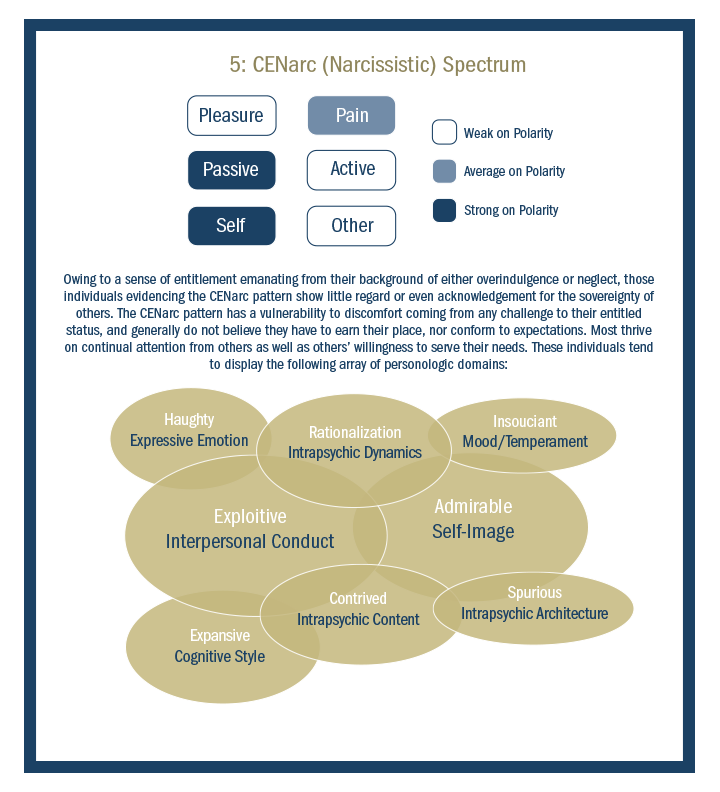
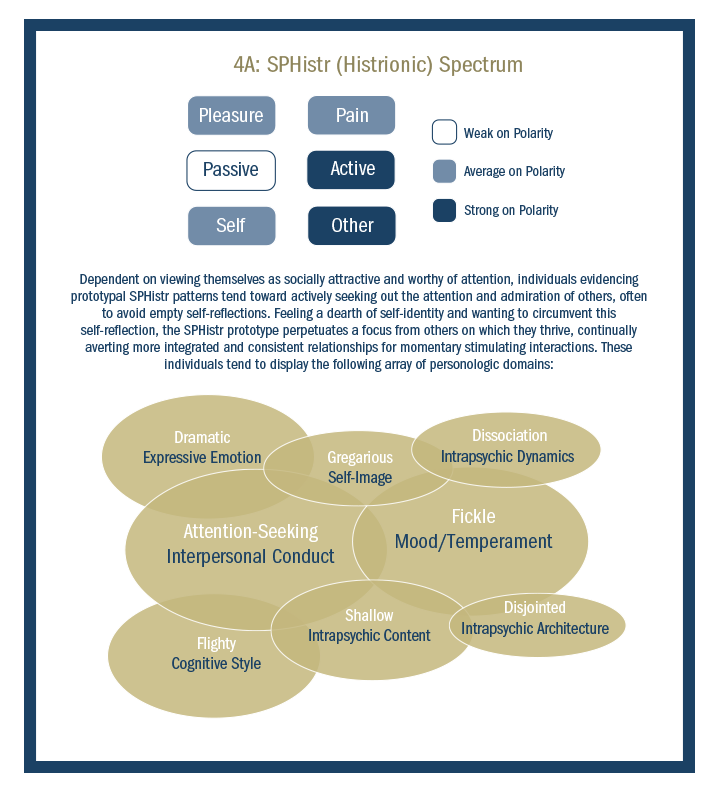
© 2015 MILLON® (Click on images for larger view)
Related USPP reports
Is “Fire and Fury” Portrait of Donald Trump Consistent with His Psychological Profile? (Jan. 9, 2018)
Is Donald Trump a Malignant Narcissist? (Feb. 22, 2017)
Donald Trump’s Leadership Style (Jan. 23, 2017)
Presidential Electability Index Predicted Donald Trump Win (Dec. 19, 2016)
A Question of Temperament: Donald Trump’s Fitness to Lead (Dec. 4, 2016)
Clinton vs. Trump: Predicting the 2016 Presidential Election Results (Nov. 8, 2016)
“Access Hollywood” — Why Donald Trump Will Not Step Down (Oct. 8, 2016)
Donald Trump’s Temperament: Trump’s Fitness to be President (Oct. 5, 2016)
Who Will Win the Clinton-Trump Presidential Debate? (Sept. 26, 2016)
Trump’s Personality Could Win, Except … (Aug. 21, 2016)
Donald Trump’s Narcissism Is Not the Main Issue (Aug. 11, 2016)
Projecting the Winner of the 2016 Presidential Election: The Personal Electability Index (Feb. 29, 2016)
Why Donald Trump Beats Jeb Bush: The Personal Electability Index (Aug. 23, 2015)
The Personality Profile of 2016 Republican Presidential Candidate Donald Trump (Aug. 9, 2015)
March 9, 2019
U.S. response to DPRK rebuilding activity at Sohae Satellite Launching Station

Update: March 14, 2019
North Korea’s Sohae Satellite Launch Facility: No new activity since March 8 (Jack Liu, Peter Makowsky, and Jenny Town, 38 North, March 13, 2019) — Recent commercial satellite imagery of the Sohae Satellite Launching Station (Tongchang-ri) shows no changes to the launch pad or engine test stand between March 8 and March 13. … Full report
Update: March 16, 2019
The U.S. and North Korea are back to talking tough (Uri Friedman, The Atlantic, March 16, 2019) — The attack dogs have been let loose. That much was clear from the stark message North Korea delivered this week after the collapse of Donald Trump’s summit with Kim Jong Un in Vietnam last month: Kim is considering abandoning nuclear negotiations with the United States and resuming the nuclear and missile tests that brought the two countries to the brink of war early on in the Trump administration. … The unmuzzling of the attack dogs on each side is a reminder that Trump and Kim are each contending with a hard-line faction at home that views the diplomacy they’re engaged in as a hopeless and dangerous endeavor. As [North Korea’s vice foreign minister, Choe Son Hui] noted this week, Kim decided to press ahead with diplomacy in Vietnam despite the fact that military leaders are petitioning him not to give up his nuclear program. … Full report
January 2, 2019
What motivates Mitt Romney to criticize President Trump’s character prior to being sworn in as senator?
In an op-ed published in the Washington Post (Jan. 1, 2019) Mitt Romney, newly elected Republican senator from Utah, wrote: “[O]n balance, [Donald Trump’s] conduct over the past two years … is evidence that the president has not risen to the mantle of the office,” adding, “A president should demonstrate the essential qualities of honesty and integrity, and elevate the national discourse with comity and mutual respect.”
Although one can only speculate on Romney’s rationale for this highly unusual maneuver — assailing the character of the president, no less the leader of his own party — the senator-elect’s personality profile offers a partial glimpse into his underlying motives.
Specifically, Romney’s primary personality pattern — conscientiousness — is characterized by deep-seated resonance to the personal qualities of honesty, integrity, and respect — suggesting it is no accident that Romney zeroed in on those particular traits as lacking in the president (and, by implication, holding himself up as exemplifying those qualities).
More information about Romney’s personality profile at the links below.
Mitt Romney’s Personality Profile
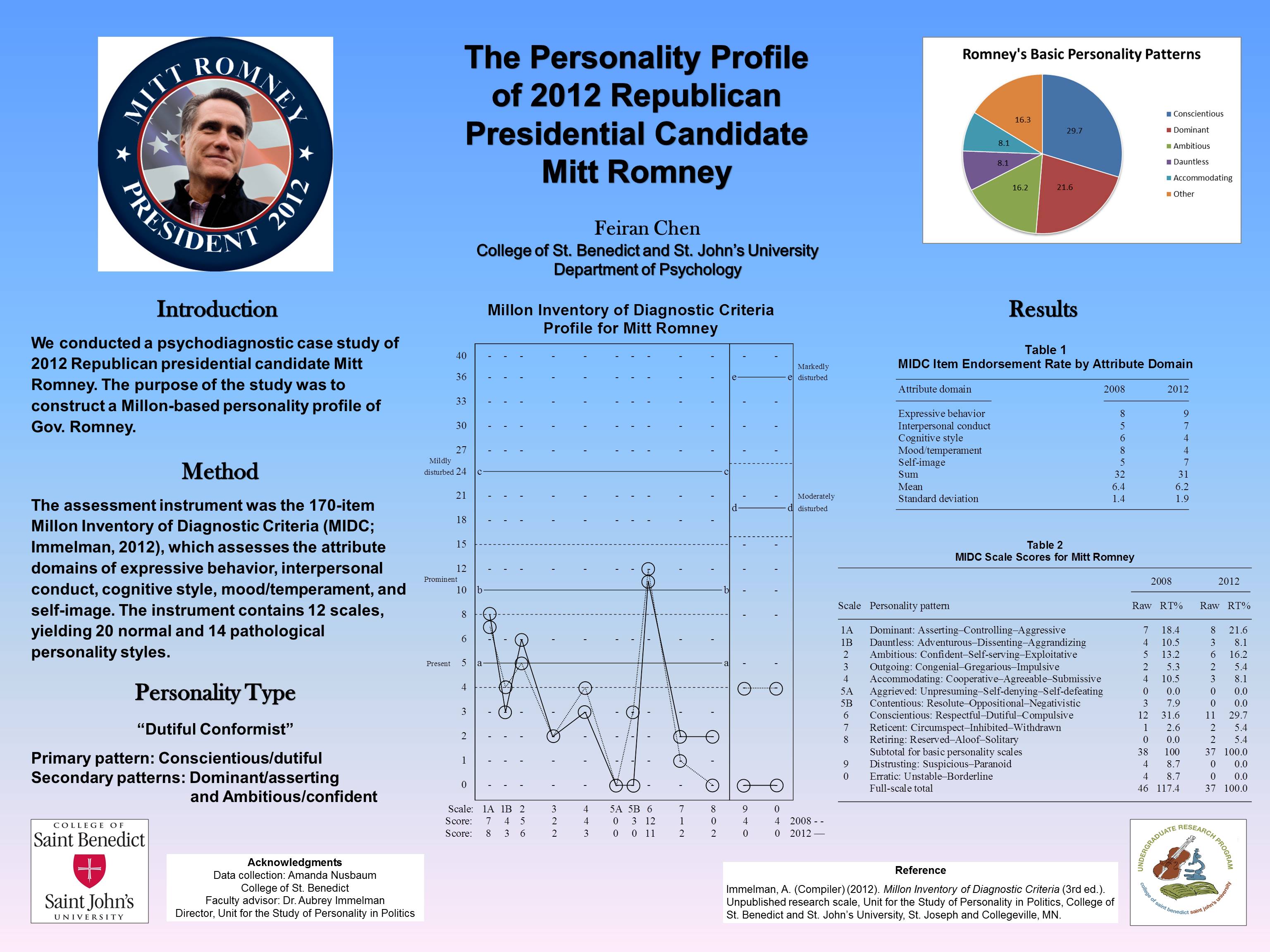
Immelman, A. (2012, July). The political personality of 2012 Republican presidential candidate Mitt Romney. Paper presented at the 35th Annual Scientific Meeting of the International Society of Political Psychology, Chicago, July 6–9, 2012. Retrieved from Digital Commons website: http://digitalcommons.csbsju.edu/psychology_pubs/98/
In Memory of U.S. President George H. W. Bush (1924-2018)
President George Herbert Walker Bush dead at 94

————————————————————————————
Related: USPP references to George H. W. Bush
At the time of George H. W. Bush’s election as president in 1988, I was a graduate student at the University of Maine, still in the early stages of developing my political psychology personality profiling methods. Hence, there are few references to “Bush 41” on this site, based purely on informal observation; my first empirical study of a U.S. president dealt with Bill Clinton.
Position Statement on National Security (July 23, 2008)
Prior to the invasion [of Iraq in 2003], we had in place a very successful containment policy against Iraqi aggression, instituted by the first President Bush after the first Gulf War. By keeping Saddam Hussein in power, in concert with a vigorous weapons inspection regime and enforcement of no-fly zones, President George H. W. Bush preserved a delicate balance of power between Iran and Iraq in one of the world’s most volatile regions, the Middle East. …
Jeb Bush’s Personality Profile (Aug. 2, 2015)
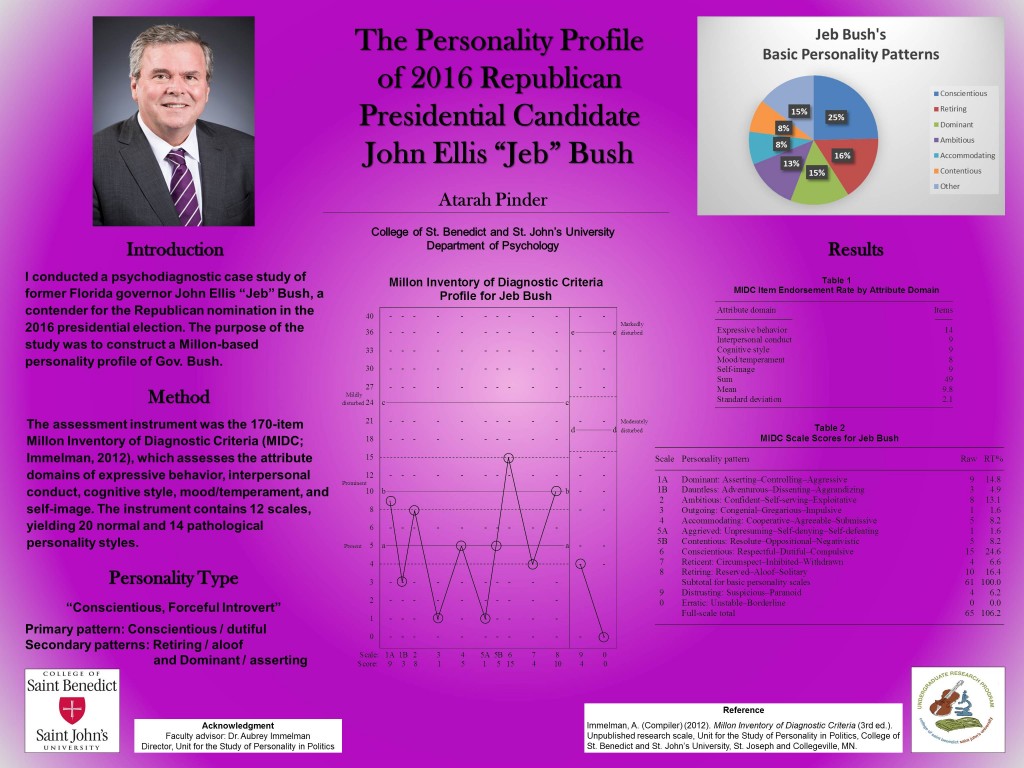
Click on image for larger view
It isn’t always easy being the son and brother of past presidents. Ask Jeb Bush.
In June, former Florida Gov. John Ellis Bush, who goes by the nickname Jeb, formally announced his presidential run. Being a member of arguably the most prominent political dynasty in American history undoubtedly has its advantages. However, Jeb Bush must also confront the daunting task of differentiating himself from his father, George H. W. Bush, and distancing himself from some of the less admirable aspects of his older brother George W. Bush’s legacy — most notably the invasion of Iraq. …
[Jeb Bush] completed college in two and a half years, is a self-proclaimed policy wonk, and prides himself in working 12–16 hours per day. These attributes reflect his highly conscientiousness personality — similar to the Bush patriarch but in stark contrast to his older brother, who scored quite low on this personality trait. …
Donald Trump’s Leadership Style (Jan. 23, 2017)
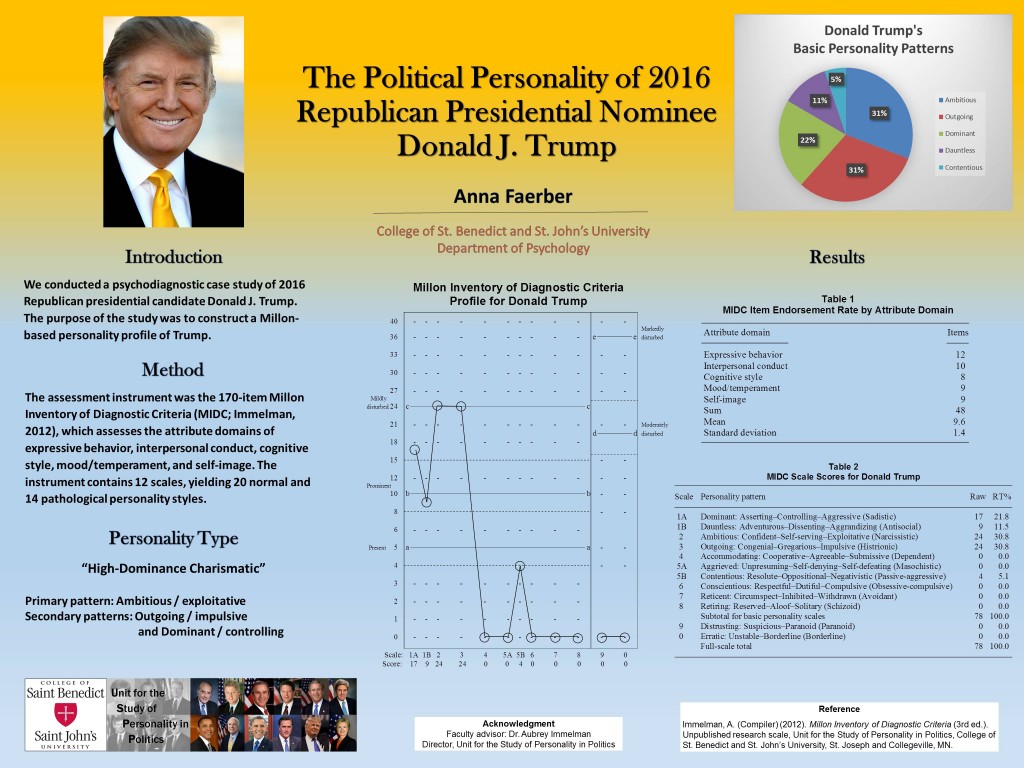
Click on image for larger view
As a “high-dominance charismatic” [Donald] Trump assumes the mantle of leadership with a Clintonian combination of extraversion and self-confidence, buttressed by a level of dominance not seen since Lyndon B. Johnson. In addition, he is practically devoid of his predecessor’s [Barack Obama’s] accommodating disposition … or George H. W. Bush’s prudent conscientiousness. …
September 23, 2018
The reliability of Dr. Christine Blasey Ford’s sexual assault allegation against Supreme Court nominee Judge Brett Kavanaugh
The expert witness best qualified to comment on the accuracy and reliability of Dr. Christine Blasey Ford’s memory of a sexual assault approximately 36 years ago is Dr. Elizabeth Loftus, distinguished professor in the Department of Psychology and Social Behavior and the Department of Criminology, Law, and Society at the University of California, Irvine, with additional appointments in the university’s Department of Cognitive Sciences and the Center for the Neurobiology of Learning and Memory.

“The real question in this case … is not whether this happened so much. But who actually did it. Because everything I’ve seen in the discussions of this case, one of the things I want to know is when did she attach the name Brett Kavanaugh to the episode that she is recounting from when she was 15 years old. And I wish somebody would ask that question because I think the answer to that question is pretty crucial.”
— Elizabeth Loftus (“Anderson Cooper 360°,” CNN, September 19, 2018)
Eminent California professor and human memory expert weighs in on Christine Ford’s allegations against Kavanaugh (Scott Morefield, Townhall.com, Sept. 23, 2018)
Caution, the Kavanaugh mess may never be resolved satisfactorily (Megan McArdle, Washington Post, Sept. 17, 2018)
Kavanaugh’s accuser may be telling the truth, but there are still big problems with her story (John Ziegler, Mediaite, Sept. 17, 2018)
More » Google search: Christine Blasey Ford Kavanaugh Elizabeth Loftus
Related interest
Recovered Memory of Childhood Sexual Abuse. Collegeville and St. Joseph, MN: St. John’s University and the College of St. Benedict. (Originally published in St. Cloud Unabridged, Sept. 1994, pp. 2-4.) Retrieved from Digital Commons website: http://digitalcommons.csbsju.edu/psychology_pubs/114/
Abstract: Examines the psychological basis for repression and recovery of traumatic memories, presents the results of research on potential sources of error in delayed or recovered memories, and offers possible reasons (primarily related to clinical practice and collective behavior) for false accusations of sexual abuse.
August 25, 2018
Sen. John McCain dead at 81
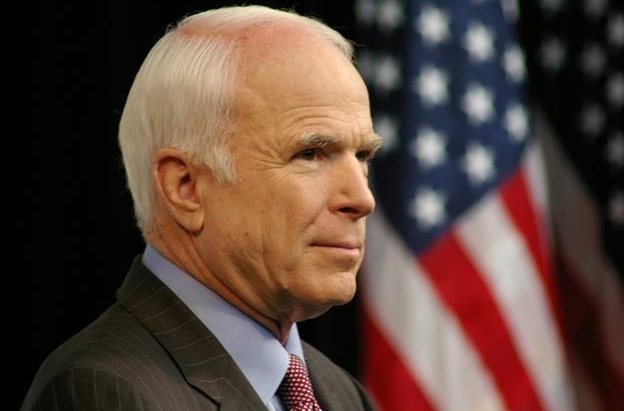
Research and articles about John McCain by USPP contributors
The Political Personality of 2008 Republican Presidential Nominee John McCain. Research report, Unit for the Study of Personality in Politics, St. John’s University/College of St. Benedict, September 2008. Abstract and link for full-text (26 pages; PDF) download at Digital Commons: http://digitalcommons.csbsju.edu/psychology_pubs/115/
“John McCain: A question of temperament” (Aubrey Immelman, St. Cloud Times, Nov. 1, 2008, p. 7B) — As Arizona Sen. John McCain tries to close the gap with Barack Obama in the final weekend leading up to Tuesday’s presidential election, his task is to convince the American people that he’s the right man to lead the nation at a time when America faces daunting economic challenges at home and urgent national security threats abroad. Voters, for their part, must discern whether McCain has the right stuff to move the nation in the right direction. A useful metric to take a measure of the man is temperament — that is, McCain’s mental and emotional predisposition to action. … Full report
“McCain’s maverick nature is double-edged sword” (Amy Marschall & Aubrey Immelman, St. Cloud Times, Oct. 15, 2008, p. 7B) — As the 2008 presidential campaign enters the home stretch in a time of growing economic uncertainty, voters are taking a new look at John McCain, who clinched the Republican nomination largely on the basis of his military and foreign policy credentials in a time of war. … To obtain a more precise reading of the real McCain, we consulted four personality profiles of the Arizona senator, developed at the Unit for the Study of Personality in Politics at the College of St. Benedict and St. John’s University in 1999, 2007, and the spring and summer of 2008. Collectively, the profiles reveal a highly dominant individual with a dauntless, dissenting, adventurous streak and a strong outgoing tendency. … Full report
“Maverick McCain finds his mojo — But what does it mean?” (Patrick Sweetman & Aubrey Immelman, St. Cloud Times, Jan. 10, 2008, p. 7B) — John McCain’s victory in Tuesday’s New Hampshire Republican primary has injected new life in a presidential campaign some had all but given up for dead. With recent polls showing McCain to be the Republican contender best positioned to beat the Democratic nominee in November, the resuscitation of McCain’s presidential prospects in New Hampshire raises anew the question of how he might govern as leader of the free world. … Full report
“Heroism, timing help McCain’s campaign” (Matthew J. Tinguely & Aubrey Immelman, St. Cloud Times, March 5, 2000, p. 9B) — Despite the overwhelming support of elected Republican leaders and the Republican establishment for the candidacy of George W. Bush, the insurgent John McCain catapulted into the national spotlight with primary wins in New Hampshire, Michigan, and Arizona. Polls released last week show McCain running well ahead of Bush in a hypothetical two-way race against likely Democratic nominee Al Gore. … What drives the McCain political machine? Two words: “hero” and “personality.” … Full report
“Former POW McCain’s rise in polls leads to more scrutiny” (Melisa S. Illies & Aubrey Immelman, St. Cloud Times, Nov. 28, 1999, p. 11B) — In the first of our College of St. Benedict/St. John’s University presidential candidate profiles (St. Cloud Times, Nov. 7), Stephanie Anderson and Holly Berreau commented on Elizabeth Dole’s withdrawal from the 2000 presidential race. It was inevitable that Dole’s departure would prompt more intense public scrutiny of Arizona Sen. John McCain as the now unrivaled challenger for Texas Gov. George W. Bush’s front-runner status in the bid for the Republican nomination. Unfortunately for McCain, his newfound ascent to prominence has been troubled by turbulence. At issue: persistent reports in the media of a “volcanic temper,” casting doubt on his fitness to govern. … Full report
July 14, 2018
2018 Russia–United States summit
On July 16, 2018, U.S. president Donald Trump and Russian president Vladimir Putin will have a summit meeting in Helsinki, Finland.
Compare the psychological profiles of Vladimir Putin and Donald Trump
The Political Personality of Russian Federation President Vladimir Putin. Working paper, Unit for the Study of Personality in Politics, January 2017. Abstract and link for full-text (38 pages; PDF) download at Digital Commons: http://digitalcommons.csbsju.edu/psychology_pubs/104/
The Political Personality of 2016 Republican Presidential Nominee Donald J. Trump. Working paper, Unit for the Study of Personality in Politics, St. John’s University/College of St. Benedict, October 2016. (Paper presented at the 41st Annual Scientific Meeting of the International Society of Political Psychology, San Antonio, TX, July 4-7, 2018.) Abstract and link for full-text (31 pages; PDF) download at Digital Commons: http://digitalcommons.csbsju.edu/psychology_pubs/103/
The Leadership Style of U.S. President Donald J. Trump. Working paper, Unit for the Study of Personality in Politics, St. John’s University/College of St. Benedict, January 2017. Abstract and link for full-text (14 pages; PDF) download at Digital Commons: http://digitalcommons.csbsju.edu/psychology_pubs/107/
May 6, 2018
Who should get the credit for Kim Jong-un’s denuclearization pledge?
North Korea says denuclearization pledge not result of U.S.-led sanctions (Reuters, May 6, 2018) — North Korea said on Sunday its intention to denuclearize … was not the result of U.S.-led sanctions and pressure. … The North’s official KCNA news agency said Washington was “misleading public opinion” by claiming the denuclearization pledge was the result of sanctions and other pressure. …
Analysis: Empirical support for North Korea’s contention that its denuclearization pledge was not solely the result of the Trump administration’s policy of sanctions and “maximum pressure” is implicit in the psychological assessment of Kim Jong-un conducted at the Unit for the Study of Personality in Politics, which indicated as early as April 2013 that Kim’s personality profile revealed a predominantly outgoing tendency supplemented by a distinctly accommodating inclination, signifying a “congenial–cooperative” leadership style and pointing to an accommodating, neighborly, conflict-avoidant foreign policy orientation.
April 28, 2018
Students Present Research at Scholarship Day
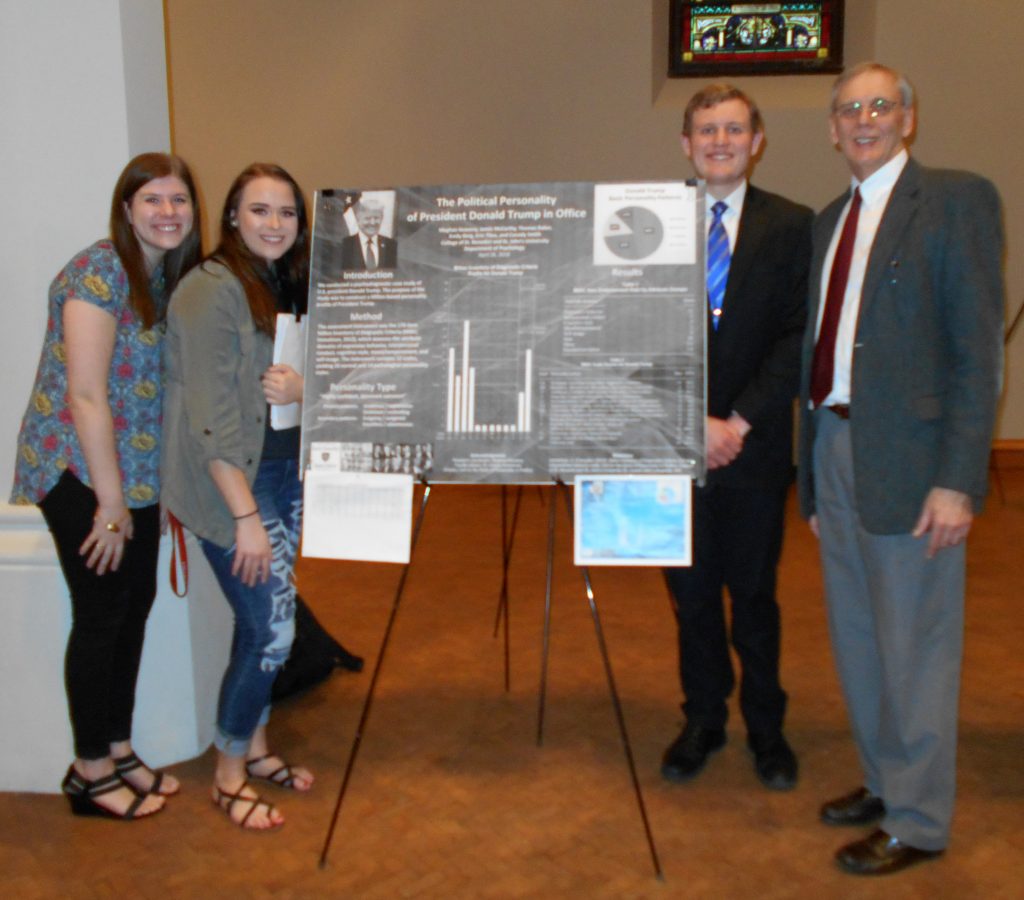
Emily Berg, Cassidy Smith, and Thomas Baker (pictured with faculty research moderator Dr. Aubrey Immelman) presented their research project, “The Political Personality of President Donald Trump in Office,” at the 18th annual Scholarship & Creativity Day, April 26, 2018, in the Great Hall at St. John’s University in Collegeville, Minn.
COLLEGEVILLE, Minn. (April. 27, 2018) — Psychological profiles of U.S. President Donald Trump and North Korean Supreme Leader Kim Jong-un were presented on April 26, 2018, at “Celebrating Scholarship and Creativity Day,” an annual event to recognize students, faculty, and staff who have undertaken significant research, scholarship, or creative works during the past academic year at St. John’s University and the College of St. Benedict.
Undergraduate students in a Personality Psychology course at the colleges conducted the research under the auspices of the Unit for the Study of Personality in Politics, directed by Aubrey Immelman, Ph.D., associate professor of psychology.
Biographical and life history data concerning the candidates were collected from media reports and synthesized into personality profiles using the third edition of the Millon Inventory of Diagnostic Criteria (MIDC). Following are abstracts of the poster presentations.
——————————————————
The Political Personality
of President Donald Trump in Office
Meghan Keaveny, Jamie McCarthy, Thomas Baker, Emily Berg, Erin Titus, Cassidy Smith, and Aubrey Immelman
Unit for the Study of Personality in Politics
April 26, 2018
Abstract
A remote psychological assessment of Donald Trump in his capacity as president of the United States was conducted from 2017 to 2018. Psychodiagnostically relevant data regarding Trump were extracted from biographical sources and media reports published after his inauguration as president on January 20, 2017, and synthesized into a personality profile using the Millon Inventory of Diagnostic Criteria (MIDC), which yields 34 normal and maladaptive personality classifications congruent with DSM–III–R, DSM–IV, and DSM–5. The primary purpose of this study, which will continue throughout the Trump presidency, was to compare Trump’s public personality in office to his personality prior to assuming political office, as assessed during the 2016 presidential election cycle.
The personality profile yielded by the MIDC was analyzed in accordance with interpretive guidelines provided in the MIDC and Millon Index of Personality Styles manuals. Trump’s primary personality patterns were found to be Ambitious/exploitative and Dominant/controlling, infused with secondary Outgoing/congenial and Dauntless/adventurous features, possibly supplemented by a slight Erratic/unstable tendency.
In summary, Trump can be characterized as a highly confident, dominant extravert, based on the amalgam of Ambitious, Dominant, and Outgoing patterns in his overall personality profile.
Ambitious individuals are bold, competitive, and self-assured; they easily assume leadership roles, expect others to recognize their special qualities, and often act as though entitled. Dominant individuals enjoy the power to direct others and to evoke obedience and respect; they are tough and unsentimental and often make effective leaders. Outgoing individuals are dramatic attention‑getters who thrive on being the center of social events, go out of their way to be popular with others, have confidence in their social abilities, tend to be impulsive and undisciplined, and become easily bored — especially when faced with repetitive or mundane tasks. Dauntless individuals tend to flout tradition, dislike following routine, sometimes act impulsively and irresponsibly, and are inclined to elaborate on or shade the truth and skirt the law.
Trump’s major personality strengths in a political role are his confident assertiveness, personal charisma, and persuasiveness. His major personality-based shortcomings are of a temperamental nature: impulsiveness and a lack of emotional restraint and self-discipline.
————————————————
The Personality Profile
of North Korea’s Kim Jong Un
김정은
Katlin Rice, Austen Luetmer, Suntina Spehar, Hillary Rethlake, Lucas Vetsch, Amanda Olson, Mariah Ogden-Kellington, and Aubrey Immelman
Unit for the Study of Personality in Politics
April 26, 2018
Abstract
A remote psychological assessment of North Korean leader Kim Jong-un was conducted from 2017 to 2018. Psychodiagnostically relevant data regarding Kim were extracted from open-source media reports and synthesized into a personality profile using the Millon Inventory of Diagnostic Criteria (MIDC), which yields 34 normal and maladaptive personality classifications congruent with DSM–III–R, DSM–IV, and DSM–5.
The personality profile yielded by the MIDC was analyzed in accordance with interpretive guidelines provided in the MIDC and Millon Index of Personality Styles manuals. Kim’s primary personality patterns were found to be Outgoing/gregarious and Dominant/controlling, supplemented by secondary Ambitious/confident, Dauntless/adventurous, and Accommodating/cooperative features. Given his Outgoing–Dominant primary personality composite, Kim may be classified as a high-dominance extravert.
Outgoing individuals are dramatic attention‑getters who thrive on being the center of social events, go out of their way to be popular with others, and are confident in their social skills; they may have an impulsive tendency and be prone to boredom. Dominant individuals enjoy the power to direct others and to evoke obedience and respect; they can be tough and unsentimental and often make effective leaders. Ambitious individuals are bold, competitive, and self-assured; they easily assume leadership roles, expect others to recognize their special qualities, and may act as though entitled. Dauntless individuals tend to flout tradition, conventional standards, and cultural mores, dislike following routine, and may act impulsively and recklessly; they are resistant to coercion and may exhibit a strong need for autonomy and self-determination. Accommodating individuals are notably cordial, cooperative, and amicable; they are willing to adapt their preferences to be compatible with those of others, to reconcile differences to achieve peaceable solutions, and to concede or compromise when necessary.
Kim Jong-un’s major personality-based leadership strength is a distinctly outgoing tendency, supplemented by an accommodating inclination, a fitting descriptive label for which would be congenial–cooperative. Leaders matching this profile can be expected to be jovial, socially gregarious, agreeable, accommodating, and obliging in their relationships with others; they are characteristically gracious, neighborly, and benevolent, preferring to avoid conflict and seek harmony with others.
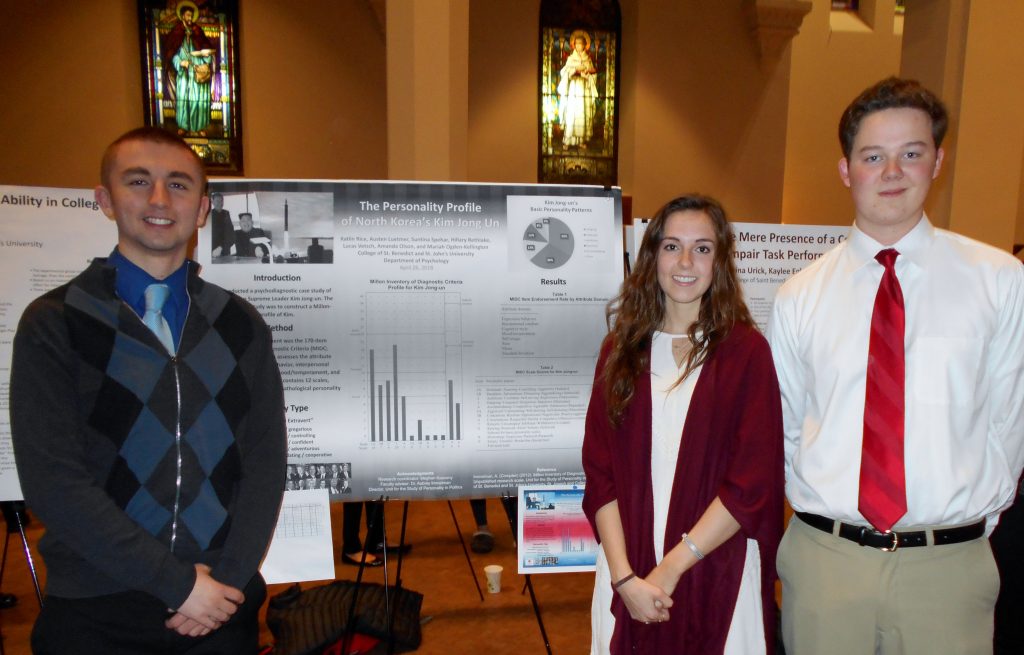
Lucas Vetsch, Amanda Olson, and Austen Luetmer present “The Personality Profile of North Korea’s Kim Jong Un” at St. John’s University, Collegeville, Minn., April 26, 2018. According to the study, “Kim Jong-un’s major personality-based leadership strength is a distinctly outgoing tendency, supplemented by an accommodating inclination, a fitting descriptive label for which would be ‘congenial–cooperative.’ Leaders matching this profile can be expected to be jovial, socially gregarious, agreeable, accommodating, and obliging in their relationships with others; they are characteristically gracious, neighborly, and benevolent, preferring to avoid conflict and seek harmony with others.”
———————————————
Related video: April 30, 2018
Gen. Keane: U.S. Framework on North Korea Is Very Clear
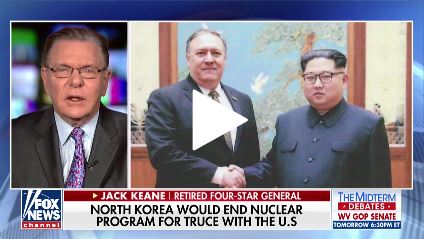
America’s Newsroom (April 30, 2018) — Fox News senior strategic analyst Gen. Jack Keane says the Central Intelligence Agency has the best profile of Kim Jong Un and former director Mike Pompeo understands Kim better than anybody and, based on the intelligence the CIA has, believes Kim is a rational actor. (04:20)
April 16, 2018
“A Higher Loyalty” — The Conscientious–Ambitious Personality Composite
Predominantly conscientious (compulsive) personalities that also possess significant ambitious (narcissistic) features have been labeled bureaucratic compulsives (Millon, 1996, pp. 521–522; Millon & Davis, 2000, p. 179). Leaders with this composite character complex are noted for their officious, high-handed bearing, intrusive, meddlesome interpersonal conduct, unimaginative, meticulous, closed-minded cognitive style, grim, imperturbable mood, and scrupulous if grandiose sense of self.
A controlling, virtuous but moralistic upbringing with high expectations for perfection can breed adults who “displace anger and insecurity by seeking out some position of power that allows them to become a socially sanctioned superego for others,” whose “swift judgment … conceals a sadistic and self-righteous joy” cloaked in the mantle of social virtue (Millon & Davis, 2000, p. 184).
The bureaucratic compulsive character complex is rooted in the highly conscientious personality’s deep ambivalence between obedience and defiance, modulated by the ambitious, narcissistic personality’s overinflated ego. It is strongly characterized by the regulatory mechanism of sadistic displacement of hostile impulses.
To compensate for their internal ambivalence, bureaucratic compulsives “fuse their identity with the system as a means of achieving place, purpose, and protection” (Millon & Davis, 2000, p. 179); the formalized external structures of the party and the state may become an embodiment of the self. To relinquish control is to obliterate the self. Political opponents are to their personal psychology what invasive organisms are to the body’s immune system — and the self-protective response equally swift and ruthless.
Millon and Davis (2000) describe the bureaucratic compulsive as follows:
Bureaucratic compulsives ally themselves with traditional values and established authorities. They flourish in organizational settings, feeling comforted, strengthened, and empowered by clearly defined superior and subordinate relationships, definite roles, and known expectations and responsibilities. Once established, they function loyally and dependably. In effect, these individuals use highly developed and formalized external structures to compensate for the internal sense of ambivalence and indecisiveness that plague the average compulsive pattern. Many fuse their identity with the system as a means of achieving place, purpose, and protection. Their superiors know them as trustworthy, diligent, and faithfully committed to the goals and values of the institution, which fortifies their self-esteem and gives them a direction. Be it church, police, union, university, or business, without the organization most would feel lost or aimless in life. Punctual and meticulous, they adhere to the work ethic like worker ants in a colony, appraising their own and others’ tasks with black-and-white efficiency, as done or not done.
Like the conscientious compulsive [conscientious–accommodating subtype], the bureaucratic subtype shades gently into normality. However, bureaucratic compulsives run the spectrum from nearly normal to completely sadistic. At a moderately disordered level, their rigid adherence to policies and rules makes them seem officious, high-handed, close-minded, and petty. At a severely disordered level, they may use their knowledge of the rules, effectiveness with red tape, and ingratiating attitude with superiors to terrorize subordinates or anyone else that crosses their path without paying them the proper dues and respect. (p. 179)
References
Immelman, A. (2014). Millon inventory of diagnostic criteria manual (3rd ed., rev.). Unpublished manuscript, Unit for the Study of Personality in Politics, College of St. Benedict and St. John’s University, St. Joseph and Collegeville, MN.
Millon, T. (with Davis, R. D.). (1996). Disorders of personality: DSM–IV and beyond (2nd ed.). New York: Wiley.
Millon, T., & Davis, R. D. (2000). Personality disorders in modern life. New York: Wiley.
March 13, 2018
Which primary challenger can beat Donald Trump in 2020?
CNN’s Chris Cillizza has named Ohio Gov. John Kasich, Arizona Sen. Jeff Flake, and former Massachusett’s Gov. Mitt Romney as Donald Trump’s top three potential challengers for the 2020 Republican nomination for president (see “The Point” blog reproduced below).
According to the USPP’s Presidential Electability Index (PEI), which has accurately predicted, before Super Tuesday, the outcome of every presidential election since 1996, neither John Kasich nor Mitt Romney is equal to the task (no data available for Jeff Flake, who has not been studied at the USPP).
On the PEI — which is highly predictive, though obviously just one of several robust predictor variables — Donald Trump (PEI = 45) comfortably outscores John Kasich (PEI = 14) and Mitt Romney (PEI = 6).
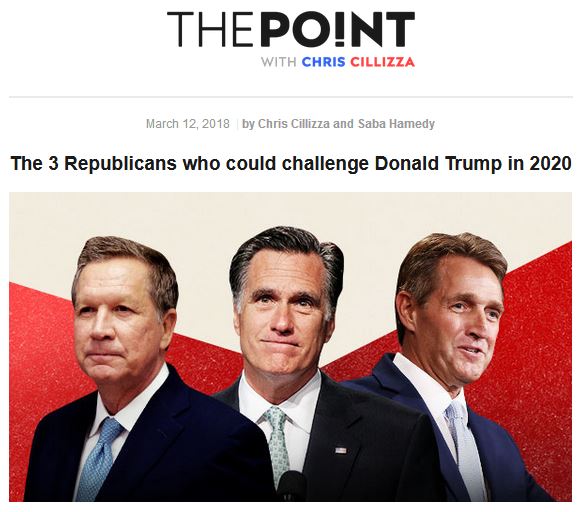
On Sunday, Sen. Jeff Flake, R-Arizona, was asked whether he thinks someone should challenge President Donald Trump in the 2020 Republican primary.
“Yes, I do. I do,” Flake told “Meet the Press” host Chuck Todd. “I mean, it would be a tough go in a Republican primary. The Republican Party is the Trump party right now. But that’s not to say it will stay that way.”
Who could that someone be? Obviously, Flake, who was all-but-forced into retirement after his attacks on Trump led to an open revolt against him by the base of the party, wants it to be him. (He has been very coy about his own future political plans.)
And he’s certainly on the list of potential Trump primary challengers. Here’s my ranking of the top three — in order of most likely to least likely to actually run.
1. John Kasich: The Ohio governor was one of a handful of major establishment politicians who never threw their lots behind Trump in 2016. And he has been open about his interest in running again. “I honestly don’t know what my future is,” Kasich told CNN in January.
2. Jeff Flake: He’s young (55) and has a very conservative record — particularly on debt and spending issues where Trump has totally abandoned Republican orthodoxy. Even so, this feels more like a race of conscience for Flake rather than a race he can actually win.
3. Mitt Romney: The two-time presidential candidate is very likely to win the seat of retiring Sen. Orrin Hatch, R-Utah, this fall. His return to the political arena — coupled with Romney’s outspoken criticism of Trump during the 2016 campaign — has people speculating that a presidential primary bid might happen. I don’t see it.
The Point: Beating a sitting president in a primary is a near-impossible task. (See Kennedy, Ted in 1980.) And while Trump’s numbers are historically low among the broader populace, he remains quite popular among Republicans. In short: One of these three men might run, but beating the President is something else entirely.
March 8, 2018
Donald Trump to meet Kim Jong-un
South Korea’s national security adviser, Chung Eui-yong, announced at the White House that U.S. President Donald Trump will meet with North Korean Supreme Leader Kim Jong-un by May 2018. Kim reportedly said he is “committed to denuclearization” and pledged North Korea will “refrain from any further nuclear or missile tests.”
Topical reports on this site
The Personality Profile of North Korean Supreme Leader Kim Jong-un
The Personality Profile of U.S. President Donald Trump
January 8, 2018

Jim VandeHei and Mike Allen (“The Wolff lines on Trump that ring unambiguously true,” Axios, Jan. 5, 2018) write:
“There are definitely parts of Michael Wolff’s ‘Fire and Fury‘ that are wrong, sloppy, or betray off-the-record confidence. But there are two things he gets absolutely right, even in the eyes of White House officials who think some of the book’s scenes are fiction: his spot-on portrait of Trump as an emotionally erratic president, and the low opinion of him among some of those serving him.”
VandeHei and Allen categorize “lines from the book [that] ring unambiguously true” into four categories: (1) how Trump processes (and resists) information; (2) instinct over expertise; (3) ill-preparedness; and (4) low regard by key aides.
Following is a selection from VandeHei and Allen’s shortlist of “Fire and Fury” quotes, annotated with empirical research findings from studies conducted at the Unit for the Study of Personality in Politics.
How Trump processes (and resists) information:
- “[Trump] seemed to lack the ability to take in third-party information.”
- “Trump didn’t read. He didn’t really even skim. … [H]e could read headlines and articles about himself, or at least headlines on articles about himself, and the gossip squibs on the New York Post’s Page Six.”
- “[Trump] trusted his own expertise — no matter how paltry or irrelevant — more than anyone else’s [see *Note]. What’s more, he had an extremely short attention span, even when he thought you were worthy of attention.”
Outgoing (histrionic) cognitive style: flighty/scattered — Avoids introspective thought, attentive to fleeting external events, and speaks in impressionistic generalities; integrates experiences poorly, resulting in scattered learning and thoughtless judgments. [*Note: Trusting one’s own expertise more than anyone else’s is a narcissistic trait.]
Instinct over expertise:
- “[Trump was] a man who, while he knew little, was entirely confident of his own gut instincts and reflexive opinions, however frequently they might change.”
Ambitious (narcissistic) expressive behavior: confident/conceited — Self-confident, conveying an air of calm, untroubled self-assurance; tends to act in a conceited manner, shading into hubris, immodesty, or presumptuousness; self-promoting, displaying an inflated sense of self-importance.
Ill-preparedness:
- “[T]he president’s views of foreign policy and the world at large were among [his White House’s] most random, uninformed, and seemingly capricious aspects. His advisers didn’t know whether he was an isolationist or a militarist, or whether he could distinguish between the two.”
Outgoing (histrionic) cognitive style: flighty/scattered — Avoids introspective thought, attentive to fleeting external events, and speaks in impressionistic generalities; integrates experiences poorly, resulting in scattered learning and thoughtless judgments.
Low regard by key aides:
- “He spoke obliviously and happily, believing himself to be a perfect pitch raconteur and public performer, while everyone with him held their breath.”
Ambitious (narcissistic) expressive behavior: confident/conceited — Self-confident, conveying an air of calm, untroubled self-assurance; tends to act in a conceited manner, shading into hubris, immodesty, or presumptuousness; self-promoting, displaying an inflated sense of self-importance.
- “If a wackadoo moment occurred on the occasions … when his remarks careened in no clear direction, his staff had to go into intense method-acting response.”
Outgoing (histrionic) mood/temperament: poor impulse control — Animated, uninhibited, and emotionally responsive; moods subject to rapid fluctuation; may be over-excitable, exhibit a pervasive tendency to be easily enthused and as easily bored or angered, make thoughtless, imprudent judgments, and embark on rash or reckless courses of action.
- “At points on the day’s spectrum of adverse political developments, he could have moments of, almost everyone would admit, irrationality. When that happened, he was alone in his anger and not approachable by anyone.”
Dominant (aggressive) mood/temperament: volatile — Prone to irritability; volatile temper that may at times be difficult to control, flaring readily into petty or contentious argument.
Recommended References for In-Depth Analysis
The Political Personality of 2016 Republican Presidential Nominee Donald J. Trump. Working paper, Unit for the Study of Personality in Politics, St. John’s University/College of St. Benedict, October 2016. Abstract and link for full-text (31 pages; PDF) download at Digital Commons: http://digitalcommons.csbsju.edu/psychology_pubs/103/
The Leadership Style of U.S. President Donald J. Trump. Working paper, Unit for the Study of Personality in Politics, St. John’s University/College of St. Benedict, January 2017. Abstract and link for full-text (14 pages; PDF) download at Digital Commons: http://digitalcommons.csbsju.edu/psychology_pubs/107/
Sidebar
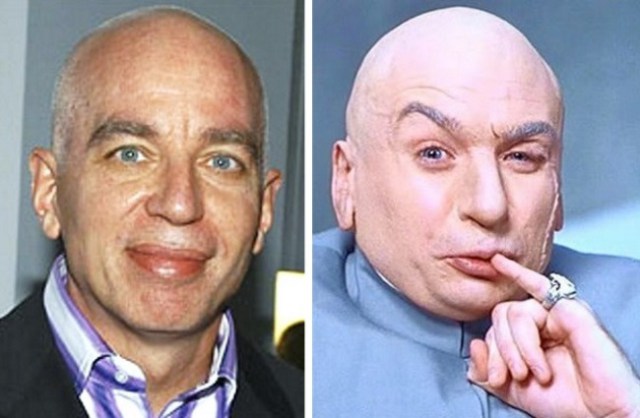
Michael Wolff and “Dr. Evil”
August 13, 2017
FOX to CIA: “What is your psychological profile of Kim Jong-un?”
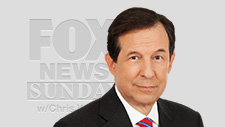

Excerpt from the transcript of Fox News Sunday, August 13, 2017:
Host Chris WALLACE: What is your psychological profile of Kim Jong-un?
CIA Director Mike POMPEO: Well, he’s pretty isolated today. For the first time, we now have the Chinese and the Russians —
WALLACE: Yes, but you give a political answer.
POMPEO: These aren’t political answers. This is about what he’s thinking. This is what he is observing. We are creating conditions for the leader there to make it clear to him that it’s just going to be unacceptable to continue to develop his missile program.
WALLACE: But what is your psychological profile of him? Is he rational? Is he disciplined? Is — you tell me.
POMPEO: He — I would describe him as rational. He responds to adverse circumstances and as the Trump administration continues to put diplomatic pressure on the regime, I’m confident that he will see that and that the people around him will see that, they will become ever more isolated and will get to the denuclearized peninsula that this administration intends to achieve.
Director Pompeo’s response the question of Kim Jong-un’s psychological profile at best scratches the surface. Empirically, psychological analysis conducted at the Unit for the Study of Personality in Politics indicates that Kim Jong-un’s personality profile is within normal limits for a high-level political leader.
Specifically, there is little evidence that Kim has a paranoid personality orientation; he does not display a pathological degree of narcissism (grandiosity, self-absorption, and an inability to empathize with others); his dominance does not rise to unconstrained aggressive or sadistic levels; and he does not have significant antisocial tendencies (i.e., bereft of any constraints of conscience). In short Kim cannot be characterized as a “malignant narcissist” — a personality composite psychiatrist Jerrold Post has called “the most dangerous personality disorder.”
Regarding the question of whether Kim is rational and disciplined, it’s difficult to provide an unequivocal response. Yes, Kim is rational; however, the North Korean regime’s policies appear at times to be irrational, but it’s not entirely clear that Kim Jong-un truly “calls the shots” in North Korea. The matter of self-discipline is more straightforward. Empirical analysis indicates that Kim Jong-un rates low on conscientiousness, from which it can be inferred that he is neither highly disciplined nor substantially deliberative and may, in fact, be prone to acting on impulse.
August 7, 2017
A follow-up, more intensive psychological investigation of North Korean leader Kim Jong-un is nearing completion, scheduled for release early in 2018.
Update
The Personality Profile of North Korean Supreme Leader Kim Jong Un. Working paper, Unit for the Study of Personality in Politics, St. John’s University/College of St. Benedict, April 2018. Abstract and link for full-text (32 pages; PDF) download at Digital Commons: https://digitalcommons.csbsju.edu/psychology_pubs/119/

Social sciences librarian Diana Symons instructs USPP summer research fellows Meghan Keaveny (front left), Jacob Wankel, and Jim Hasselbrink on bibliographic database searching for a North Korea threat assessment research project, Aug. 4, 2017.
July 7, 2017
Putin–Trump meeting
Donald Trump and Vladimir Putin meet face-to-face at the G20 summit in Hamburg, Germany today.
Psychological profiles of Vladimir Putin and Donald Trump
The Political Personality of Russian Federation President Vladimir Putin. Working paper, Unit for the Study of Personality in Politics, January 2017. Abstract and link for full-text (38 pages; PDF) download at Digital Commons: http://digitalcommons.csbsju.edu/psychology_pubs/104/
The Political Personality of 2016 Republican Presidential Nominee Donald J. Trump. Working paper, Unit for the Study of Personality in Politics, St. John’s University/College of St. Benedict, October 2016. Abstract and link for full-text (31 pages; PDF) download at Digital Commons: http://digitalcommons.csbsju.edu/psychology_pubs/103/
The Leadership Style of U.S. President Donald J. Trump. Working paper, Unit for the Study of Personality in Politics, St. John’s University/College of St. Benedict, January 2017. Abstract and link for full-text (14 pages; PDF) download at Digital Commons: http://digitalcommons.csbsju.edu/psychology_pubs/107/
April 28, 2017
The personality profile of North Korean supreme leader Kim Jong-un
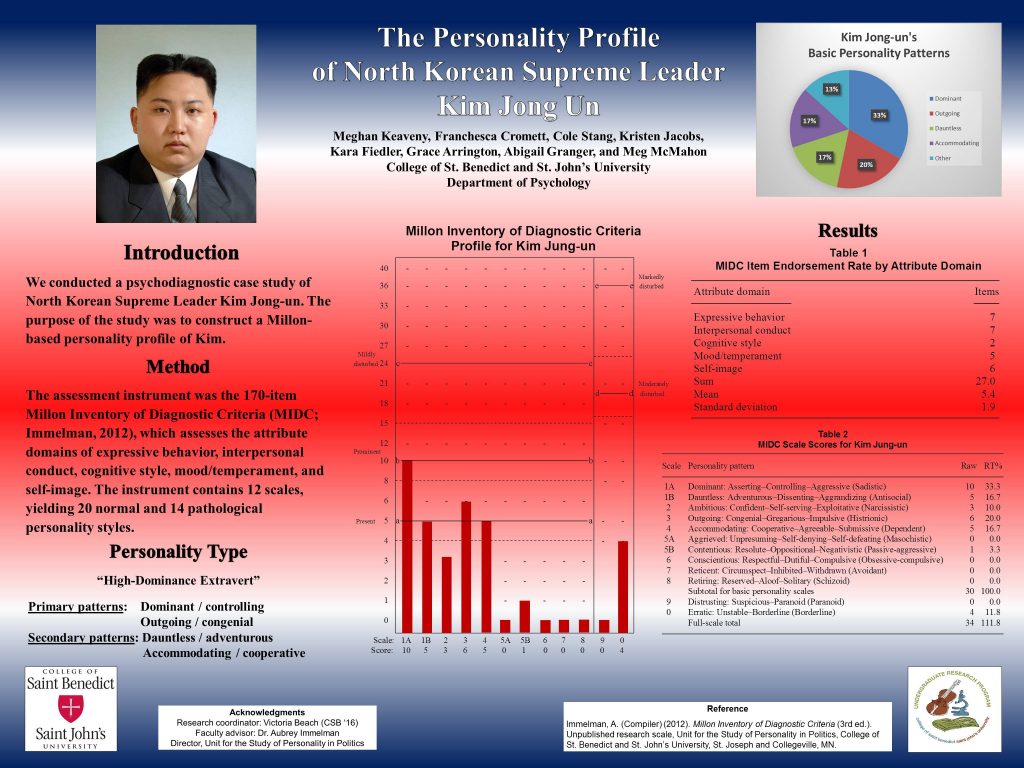

Franchesca Cromett, Meghan Keaveny, Meg McMahon, and Kristen Jacobs present “The Personality Profile of North Korean Supreme Leader Kim Jong Un” at the College of St. Benedict, St. Joseph, Minn., April 27, 2017.
The personality profile of U.S. vice president Mike Pence
The Political Personality of U.S. Vice President Mike Pence. Working paper, Unit for the Study of Personality in Politics, St. John’s University/College of St. Benedict, May 2017. Abstract and link for full-text (19 pages; PDF) download at Digital Commons: http://digitalcommons.csbsju.edu/psychology_pubs/118/
April 20, 2017
Has Allan Lichtman correctly predicted the winner of every presidential election since 1984?
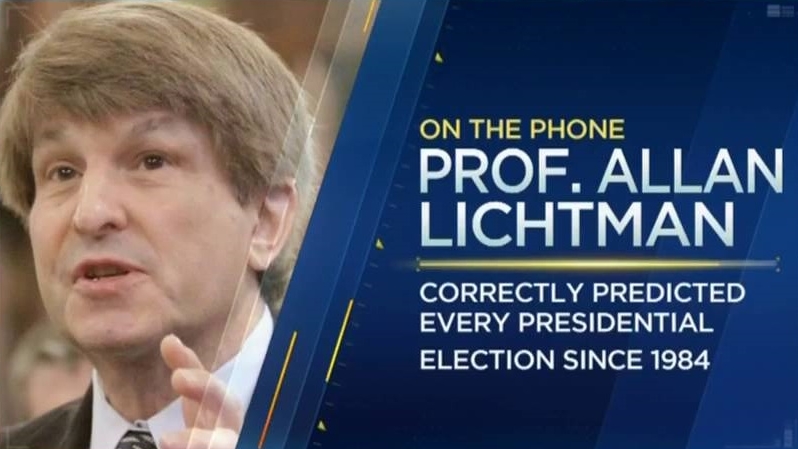
Mika Brzezinski: “American University professor Allan Lichtman … predicting that Trump would win the election … adding to his streak of correctly predicting the winner of every presidential election since 1984.”
Professor predicts Trump impeachment ‘very likely’ (MSNBC “Morning Joe,” April 18, 2017) — Writer and professor Allan Lichtman made an early prediction that Donald Trump would win the presidency. He’s back with a new prediction: Trump could be impeached. Lichtman joins the discussion. (Duration: 8:44)
Election 2000 — Excerpts from media reports
Al Gore will be the next president of the United States. … The prediction … is the work of one Allan Lichtman, political scientist and head of the history department at American University. He’s scoring a lot of coverage with it, mainly because, in the last 35 presidential elections, Lichtman’s success rate is 100 percent. Lichtman developed his “13 keys” test in the early 1980s with the help of — get this — a Russian specialist in earthquake prediction. In every Oval Office contest since then, Lichtman has used the keys to correctly predict the winner. And looking backward, his method holds true for every presidential race since 1860. (“President Al wins this election test,” Michael Zuzel, Columbian [Vancouver, Wash.], April 4 2000: A11)
Lichtman concluded the contestants and their campaigns really don’t matter. “The election is a referendum on peace, prosperity and good times at home,” he said. With that in mind, he said he predicts a Gore win. Gore started out with just three of the 13 keys against him. He’s not a sitting president, he’s not considered charismatic and he’s been associated with a scandal. (“Keys to election: Gore in a landslide?” Gail Rippey, Sunday News [Lancaster, Pa.], Oct.8 2000: A-1)
Election 2016 — Press release
With the presidential election just weeks away, Donald J. Trump is predicted to win, according to American University Professor Allan Lichtman. Lichtman’s “13 Keys” system predicts the outcome of the popular vote [emphasis added] based on the performance of the party and not the use of candidate preference polls, campaign strategies, or events. “The Keys point to a Donald Trump victory, and in general, point to a generic Republican victory. Still, I believe that given the unprecedented nature of the Trump candidacy and Trump himself, Trump could defy all odds and lose even though the verdict of history is in his favor,” Lichtman said. (“Historian’s prediction: Donald J. Trump to win 2016 election,” Rebecca Basu, University Communications & Marketing, American University, Sept. 26, 2016)
Election 2016 — Final popular vote result
| Donald J. Trump | Hillary Clinton | |
| Popular vote | 62,984,825 | 65,853,516 |
| Percentage | 46.1% | 48.2% |
April 1, 2017 (Updated July 20, 2021)
Following is a partial catalogue of psychological assessments of U.S. presidents and presidential candidates, foreign leaders, and rogue or terrorist leaders conducted at the Unit for the Study of Personality in Politics.
U.S. Presidents and Presidential Candidates
The Personality Profile and Leadership Style of U.S. President Joe Biden. Paper presented by Anne Marie Griebie and Aubrey Immelman at the 44th Annual Scientific Meeting of the International Society of Political Psychology, July 11–13, 2021 (virtual conference). Abstract and link for full-text (27 pages; PDF) download at Digital Commons: https://digitalcommons.csbsju.edu/psychology_pubs/132/
The Political Personality of 2020 Democratic Vice-Presidential Nominee Kamala Harris. Working paper by Anne Marie Griebie, Aubrey Immelman, and Yitao Zhang, Unit for the Study of Personality in Politics, St. John’s University/College of St. Benedict, September 2020. Abstract and link for full-text (26 pages; PDF) download at Digital Commons: https://digitalcommons.csbsju.edu/psychology_pubs/131/
The Political Personality of 2020 Democratic Presidential Nominee Joe Biden. Working paper by Anne Marie Griebie and Aubrey Immelman, Unit for the Study of Personality in Politics, St. John’s University/College of St. Benedict, August 2020. Abstract and link for full-text (22 pages; PDF) download at Digital Commons: https://digitalcommons.csbsju.edu/psychology_pubs/130/
The Personality Profile and Leadership Style of U.S. President Donald J. Trump in Office. Paper presented by Aubrey Immelman and Anne Marie Griebie at the 43rd Annual Scientific Meeting of the International Society of Political Psychology, Berlin, Germany, July 14–16, 2020. Abstract and link for full-text (71 pages; PDF) download at Digital Commons: http://digitalcommons.csbsju.edu/psychology_pubs/129/
The Political Personality of 2020 Democratic Presidential Contender Bernie Sanders. Working paper by Aubrey Immelman, Unit for the Study of Personality in Politics, St. John’s University/College of St. Benedict, March 2020. Abstract and link for full-text (24 pages; PDF) download at Digital Commons: https://digitalcommons.csbsju.edu/psychology_pubs/126/
The Political Personality of Former U.S. Vice President Joe Biden. Working paper by Aubrey Immelman, Unit for the Study of Personality in Politics, St. John’s University/College of St. Benedict, December 2019. Abstract and link for full-text (21 pages; PDF) download at Digital Commons: http://digitalcommons.csbsju.edu/psychology_pubs/122/
The Political Personality of U.S. Vice President Mike Pence. Working paper by Aubrey Immelman, Unit for the Study of Personality in Politics, St. John’s University/College of St. Benedict, May 2017. Abstract and link for full-text (19 pages; PDF) download at Digital Commons: http://digitalcommons.csbsju.edu/psychology_pubs/118/
The Leadership Style of U.S. President Donald J. Trump. Working paper by Aubrey Immelman, Unit for the Study of Personality in Politics, St. John’s University/College of St. Benedict, January 2017. Abstract and link for full-text (14 pages; PDF) download at Digital Commons: http://digitalcommons.csbsju.edu/psychology_pubs/107/
The Political Personality of 2016 Republican Presidential Nominee Donald J. Trump. Working paper by Aubrey Immelman, Unit for the Study of Personality in Politics, St. John’s University/College of St. Benedict, October 2016 (Paper presented at the 41st Annual Scientific Meeting of the International Society of Political Psychology, San Antonio, TX, July 4–7, 2018). Abstract and link for full-text (31 pages; PDF) download at Digital Commons: http://digitalcommons.csbsju.edu/psychology_pubs/103/
The Political Personality of 2016 Democratic Presidential Nominee Hillary Clinton. Working paper by Aubrey Immelman, Unit for the Study of Personality in Politics, St. John’s University/College of St. Benedict, October 2016. Abstract and link for full-text (34 pages; PDF) download at Digital Commons: http://digitalcommons.csbsju.edu/psychology_pubs/102/
Personality Profiles of the 2016 Republican Presidential Candidates. Forum lecture by Aubrey Immelman, St. John’s University/College of St. Benedict, November 5, 2015. Abstract and link for full-text (15 pages; PDF) download at Digital Commons: http://digitalcommons.csbsju.edu/forum_lectures/136/
The Political Personality of 2012 Republican Presidential Candidate Mitt Romney. Paper presented by Aubrey Immelman at the 35th Annual Scientific Meeting of the International Society of Political Psychology, Chicago, July 6–9, 2012. Abstract and link for full-text (35 pages; PDF) download at Digital Commons: http://digitalcommons.csbsju.edu/psychology_pubs/98/
The Political Personality of 2008 Democratic Presidential Contender John Edwards. Brief research report by Aubrey Immelman, Unit for the Study of Personality in Politics, St. John’s University/College of St. Benedict, June 2011. Abstract and link for full-text (3 pages; PDF) download at Digital Commons: http://digitalcommons.csbsju.edu/psychology_pubs/116/
The Political Personality of U.S. President Barack Obama. Paper presented by Aubrey Immelman at the 33rd Annual Scientific Meeting of the International Society of Political Psychology, San Francisco, CA, July 7–10, 2010. Abstract and link for full-text (19 pages; PDF) download at Digital Commons: http://digitalcommons.csbsju.edu/psychology_pubs/25/
The Political Personality of 2008 Republican Presidential Nominee John McCain. Research report by Aubrey Immelman, Unit for the Study of Personality in Politics, St. John’s University/College of St. Benedict, September 2008. Abstract and link for full-text (26 pages; PDF) download at Digital Commons: http://digitalcommons.csbsju.edu/psychology_pubs/115/
The Political Personalities of 2008 Republican Presidential Contenders John McCain and Rudy Giuliani. Paper presented by Aubrey Immelman at the 30th Annual Scientific Meeting of the International Society of Political Psychology, Portland, OR, July 4–7, 2007. Abstract and link for full-text (30 pages; PDF) download at Digital Commons: http://digitalcommons.csbsju.edu/psychology_pubs/28/
The Political Personality of 2004 Democratic Presidential Candidate John Kerry. Paper presented by Aubrey Immelman and Adam Beatty at the 28th Annual Scientific Meeting of the International Society of Political Psychology, Toronto, Canada, July 3–6, 2005. Abstract and link for full-text (25 pages; PDF) download at Digital Commons: http://digitalcommons.csbsju.edu/psychology_pubs/29/
The Political Personality of U.S. President George W. Bush. Book chapter by Aubrey Immelman in Linda O. Valenty & Ofer Feldman (Eds.), Political Leadership for the New Century: Personality and Behavior among American Leaders (pp. 81–103). Westport, CT: Praeger. Abstract and link for full-text (23 pages; PDF) download at Digital Commons: http://digitalcommons.csbsju.edu/psychology_pubs/52/
The Political Personalities of 2000 U.S. Presidential Candidates George W. Bush and Al Gore. Paper presented by Aubrey Immelman at the 23rd Annual Scientific Meeting of the International Society of Political Psychology, Seattle, WA, July 1–4, 2000. Abstract and link for full-text (49 pages; PDF) download at Digital Commons: http://digitalcommons.csbsju.edu/psychology_pubs/35/
The Political Personality of U.S. Vice President Al Gore. Paper presented by Aubrey Immelman at the 21st Annual Scientific Meeting of the International Society of Political Psychology, Montréal, Québec, Canada, July 12–15, 1998. Abstract and link for full-text (28 pages; PDF) download at Digital Commons: http://digitalcommons.csbsju.edu/psychology_pubs/37/
The Political Personalities of 1996 U.S. Presidential Candidates Bill Clinton and Bob Dole. Article by Aubrey Immelman, Leadership Quarterly, Vol. 9, No. 3, Special Issue: Political Leadership, Fall 1998, pp. 335–366. Abstract and link for full-text (32 pages; PDF) download at Digital Commons: http://digitalcommons.csbsju.edu/psychology_pubs/3/
Foreign Leaders
The Personality Profile and Leadership Style of Canadian Prime Minister Justin Trudeau. Paper presented by Juliana Khoury and Aubrey Immelman at the 44th Annual Scientific Meeting of the International Society of Political Psychology, July 11–13, 2021 (virtual conference). Abstract and link for full-text (33 pages; PDF) download at Digital Commons: https://digitalcommons.csbsju.edu/psychology_pubs/133/
The Leadership Style of North Korean Supreme Leader Kim Jong Un. Working paper by Aubrey Immelman, Unit for the Study of Personality in Politics, St. John’s University/College of St. Benedict, June 2018. Abstract and full text (17 pages; PDF) available for download at Digital Commons: https://digitalcommons.csbsju.edu/psychology_pubs/120/
The Personality Profile of North Korean Supreme Leader Kim Jong Un. Working paper by Aubrey Immelman, Unit for the Study of Personality in Politics, St. John’s University/College of St. Benedict, April 2018. Abstract and link for full-text (32 pages; PDF) download at Digital Commons: https://digitalcommons.csbsju.edu/psychology_pubs/119/
The Political Personality of Russian Federation President Vladimir Putin. Working paper by Aubrey Immelman and Joe Trenzeluk, Unit for the Study of Personality in Politics, St. John’s University/College of St. Benedict, January 2017. Abstract and link for full-text (38 pages; PDF) download at Digital Commons: http://digitalcommons.csbsju.edu/psychology_pubs/104/
The Political Personality of French President Nicolas Sarkozy. Paper presented by Pascal de Sutter and Aubrey Immelman at the 31st Annual Scientific Meeting of the International Society of Political Psychology, Paris, France, July 9–12, 2008. Abstract and link for full-text (24 pages; PDF) download at Digital Commons: http://digitalcommons.csbsju.edu/psychology_pubs/26/
The Political Personality of 2007 French Presidential Candidate Ségolène Royal. Paper presented by Pascal de Sutter and Aubrey Immelman at the 31st Annual Scientific Meeting of the International Society of Political Psychology, Paris, France, July 9–12, 2008. Abstract and link for full-text (29 pages; PDF) download at Digital Commons: http://digitalcommons.csbsju.edu/psychology_pubs/27/
The Political Personality of Zimbabwean President Robert Mugabe. Paper presented by Aubrey Immelman and Adam Beatty at the 26th Annual Scientific Meeting of the International Society of Political Psychology, Boston, MA, July 6–9, 2003. Abstract and link for full-text (28 pages; PDF) download at Digital Commons: http://digitalcommons.csbsju.edu/psychology_pubs/30/
South Africa in Transition: The Influence of the Political Personalities of Nelson Mandela and F. W. de Klerk. Paper presented by Aubrey Immelman at the 17th Annual Scientific Meeting of the International Society of Political Psychology, Santiago de Compostela, Galicia, Spain, July 11–14, 1994. Abstract and link for full-text (39 pages; PDF) download at Digital Commons: http://digitalcommons.csbsju.edu/psychology_pubs/41/
A Millon-Based Study of Political Personality: Nelson Mandela and F. W. de Klerk — Part I: Method and Preliminary Results. Paper presented by Aubrey Immelman at the 16th Annual Scientific Meeting of the International Society of Political Psychology, Cambridge, MA, July 6–11, 1993. Abstract and link for full-text (22 pages; PDF) download at Digital Commons: http://digitalcommons.csbsju.edu/psychology_pubs/42/
A Millon-Based Study of Political Personality: Nelson Mandela and F. W. de Klerk — Part II: Further Results and Implications. Unpublished manuscript by Aubrey Immelman, June 1994. Abstract and link for full-text (29 pages; PDF) download at Digital Commons: http://digitalcommons.csbsju.edu/psychology_pubs/97/
Terrorist Leaders
The Personality Profile of al-Qaida Leader Osama bin Laden. Paper presented by Aubrey Immelman at the 25th Annual Scientific Meeting of the International Society of Political Psychology, Berlin, Germany, July 16–19, 2002. Abstract and link for full-text (26 pages; PDF) download at Digital Commons: http://digitalcommons.csbsju.edu/psychology_pubs/69/
“Bin Laden ’s Brain”: The Abrasively Negativistic Personality of Dr. Ayman al-Zawahiri. Paper presented by Aubrey Immelman and Kathryn Kuhlmann at the 26th Annual Scientific Meeting of the International Society of Political Psychology, Boston, MA, July 6–9, 2003. Abstract and link for full-text (38 pages; PDF) download at Digital Commons: http://digitalcommons.csbsju.edu/psychology_pubs/31/
The Personality Profile of September 11 Hijack Ringleader Mohamed Atta. Paper presented by Aubrey Immelman at the 25th Annual Scientific Meeting of the International Society of Political Psychology, Berlin, Germany, July 16–19, 2002. Abstract and link for full-text (28 pages; PDF) download at Digital Commons: http://digitalcommons.csbsju.edu/psychology_pubs/32/
The Unit for the Study of Personality in Politics (USPP) is a research program in the psychology of politics at St. John’s University and the College of St. Benedict in Minnesota, directed by Aubrey Immelman, Ph.D., associate professor of psychology, who specializes in the psychological assessment of presidential candidates and world leaders.
The Unit is operated solely for research and educational purposes. It does not advocate support for or defeat of any candidate for political office. Political analysis published by the director or research associates of the USPP is the personal opinion of those individuals, based on empirical analysis of personality in politics and the influence of personality traits on high-level leadership.
February 22, 2017
Is Donald Trump a “malignant narcissist”?
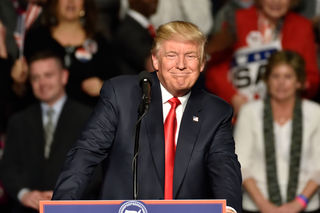
Photo: Evan El-Amin / Shutterstock via Psychology Today
Psychology Today recently (Jan. 31, 2017) reported:
In the several days since psychologist John Gartner posted a petition on Facebook declaring that Donald Trump must be removed from office because he has “a serious mental illness that renders him psychologically incapable of competently discharging the duties of President of the United States,” more than 18,000 psychologists, psychiatrists, and other mental health professionals have signed their agreement.
Gartner, a psychologist in private practice in Baltimore and New York, author of a psychobiography of Bill Clinton, and a former instructor in psychiatry at Johns Hopkins, contends that Trump “manifestly” meets the DSM-published criteria for at least three personality disorders: narcissistic personality disorder (NPD), antisocial personality disorder, and paranoid personality disorder. They are a “toxic brew” that in his view not only make Trump “dangerous” but add up to “malignant narcissism,” not a diagnosis formalized in the Diagnostic and Statistical Manual [of mental disorders, published by the American Psychiatric Association] but a label coined by the German-born psychologist and psychoanalyst Erich Fromm.
An indirect personality assessment of Donald Trump conducted 2015–2016 from the conceptual perspective of psychologist Theodore Millon, employing the Millon Inventory of Diagnostic Criteria (MIDC), which is congruent with Axis II of DSM–IV, revealed that Trump’s predominant personality patterns are Ambitious/exploitative (Scale 2: a measure of narcissistic tendencies) and Outgoing/impulsive (Scale 3: a measure of histrionic tendencies), infused with secondary features of the Dominant/controlling pattern (Scale 1A: a measure of sadistic tendencies) and supplemented by a Dauntless/adventurous tendency (Scale 1B: a measure of antisocial and sensation-seeking tendencies).
The study found no empirical evidence of a Distrusting personality pattern (Scale 9: a measure of paranoid tendencies) — an integral component of malignant narcissism, a severely disturbed personality disorder characterized by narcissistic grandiosity, self-absorption, and lack of empathy; no constraints of conscience (an antisocial tendency); a paranoid orientation; and unconstrained aggression (sadism). Notably, Scale 1A (sadistic) and Scale 1B (antisocial) also failed to reach the MIDC scale elevation threshold of 24 required for inferring the existence of a personality disorder. Consequently, it cannot be concluded that Donald Trump is a malignant narcissist.
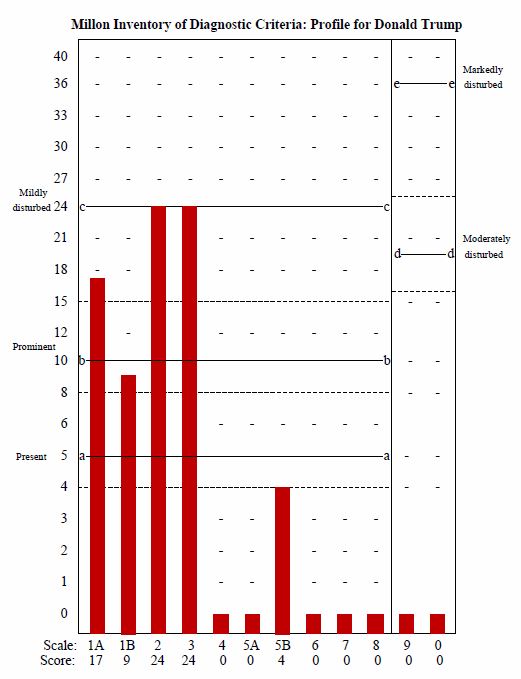
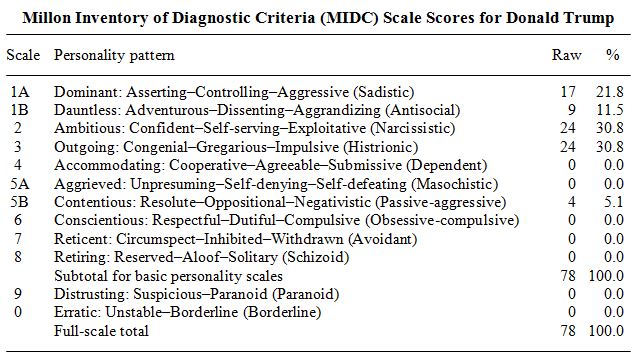
According to the Psychology Today report, psychiatrist Allen Frances — who helped write the criteria for personality disorders — views “public diagnoses being bandied about” as inaccurate and missing the point, because “they ignore the criterion that symptoms must be causing distress and impairment.” Donald Trump, according to Frances, “causes distress to others, not to himself … [and] is rewarded for his behaviors.”
———————————————
Update: February 23, 2017
Trump’s mental health: ‘The elephant in the room’ (“The Last Word with Lawrence O’Donnell,” MSNBC, Feb. 23, 2017) — As psychologists and psychiatrists continue to warn about President Trump’s mental health, the Columbia Journalism Review called Trump’s mental health “the elephant in the room.” Lee Siegel, who wrote the CJR column, and Dr. Lance Dodes join Lawrence. (Duration: 7:04)
———————————
Update: May 6, 2017
“Duty to Warn” — Yale psychologist spearheads Donald Trump ‘Hitler Lite’ campaign
Jesse Watters vs. psychologist that claims Trump is mentally ill (Watters’ World, Fox News Channel, May 6, 2017) — Yale’s Dr. John Gartner, founder of “Duty to Warn.” (Duration: 06:42)
————————
Related report
Donald Trump’s Narcissism Is Not the Main Issue (Aug. 11, 2016)


© 2015 MILLON® (Click on images for larger view)
February 20, 2017
Russia compiling psychological dossier on Donald Trump for Vladimir Putin
NBC News (Feb. 20, 2017) reports: “A dossier on Donald Trump’s psychological makeup is being prepared for Russian President Vladimir Putin. Among its preliminary conclusions is that the new American leader is a risk-taker who can be naïve, according to a senior Kremlin adviser. … The attempt to get inside the U.S. president’s mind is aimed at helping Putin plan for his first meeting with America’s new leader, the date for which is yet to be decided.”
Related reports
A psychological study of Donald Trump conducted at the Unit for the Study of Personality in Politics revealed that Trump’s predominant personality patterns are outgoing/impulsive and ambitious/exploitative (a measure of narcissism), infused with secondary features of the dominant/controlling pattern and low conscientiousness — a personality composite characterized as a “high-dominance charismatic.”
The Leadership Style of U.S. President Donald J. Trump. Working paper, Unit for the Study of Personality in Politics, St. John’s University/College of St. Benedict, January 2017. Abstract and link for full-text (14 pages; PDF) download at Digital Commons: http://digitalcommons.csbsju.edu/psychology_pubs/107/
The Political Personality of 2016 Republican Presidential Nominee Donald J. Trump. Working paper, Unit for the Study of Personality in Politics, St. John’s University/College of St. Benedict, October 2016. Abstract and link for full-text (31 pages; PDF) download at Digital Commons: http://digitalcommons.csbsju.edu/psychology_pubs/103/
January 31, 2017
Prospects for the Trump Presidency
The Eugene J. McCarthy Center for Public Policy & Civic Engagement is hosting a panel discussion on “Donald Trump: What Will Happen in the Next Four Years” on Tuesday, January 31 at 5:15 p.m.
Recent reports by the Unit for the Study of Personality in Politics related to the discussion topic:
The Political Personality of 2016 Republican Presidential Nominee Donald J. Trump » http://digitalcommons.csbsju.edu/psychology_pubs/103/
The Leadership Style of U.S. President Donald J. Trump » http://digitalcommons.csbsju.edu/psychology_pubs/107/
January 29, 2017
The personality of U.S. Supreme Court associate justice Clarence Thomas
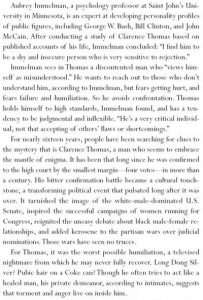
Excerpt from “Supreme Discomfort: The Divided Soul of Clarence Thomas” by Kevin Merida and Michael Fletcher.
More than a decade after the study was conducted, the Unit for the Study of Personality in Politics has publicly released its personality profile of U.S. Supreme Court associate justice Clarence Thomas. The report was prepared for the Washington Post’s Kevin Merida as part of the background research for his book, with Michael Fletcher, Supreme Discomfort: The Divided Soul of Clarence Thomas (2007).
The Personality of U.S. Supreme Court Justice Clarence Thomas. Research report, Unit for the Study of Personality in Politics, St. John’s University/College of St. Benedict, July 2004. Abstract and link for full-text (22 pages; PDF) download at Digital Commons: http://digitalcommons.csbsju.edu/psychology_pubs/108/
January 23, 2017
Donald Trump’s leadership style
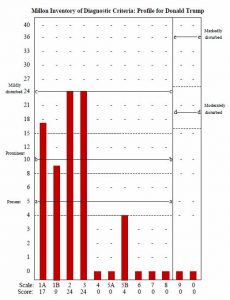 The Unit for the Study of Personality in Politics has released its analysis of Donald Trump’s prospective leadership style as president.
The Unit for the Study of Personality in Politics has released its analysis of Donald Trump’s prospective leadership style as president.
The Leadership Style of U.S. President Donald J. Trump. Working paper, Unit for the Study of Personality in Politics, St. John’s University/College of St. Benedict, January 2017. Abstract and link for full-text (14 pages; PDF) download at Digital Commons: http://digitalcommons.csbsju.edu/psychology_pubs/107/
January 4, 2017
Explaining Donald Trump’s Twitter habit
Wall Street Journal Washington bureau chief Gerald F. Seib, in his Jan. 2, 2017 Capital Journal column “The method in Donald Trump’s maddening communications habits,” poses the question “Is it method or madness?” (i.e., reason or emotion) and proceeds to outline three rationales for Donald Trump’s social media communication habits: (1) positioning himself for a negotiation or a deal; (2) seeking to control the agenda; and (3) creating rabbits for others to chase.
All three hypothesized purposes lean in the direction of cognition-driven rational motives. A fourth rationale to consider is the possibility of emotion-driven personality variables.
Specifically, Donald Trump is the most sociable, extraverted president since Bill Clinton — but the many positive implications of those traits for retail politics constitute a double-edged sword on account of that particular personality pattern’s associated features of impulsiveness and a lack of discipline and self-restraint.
More » http://www.immelman.us/news/donald-trumps-narcissism-is-not-the-main-issue/
Personality has consequences.
Related links

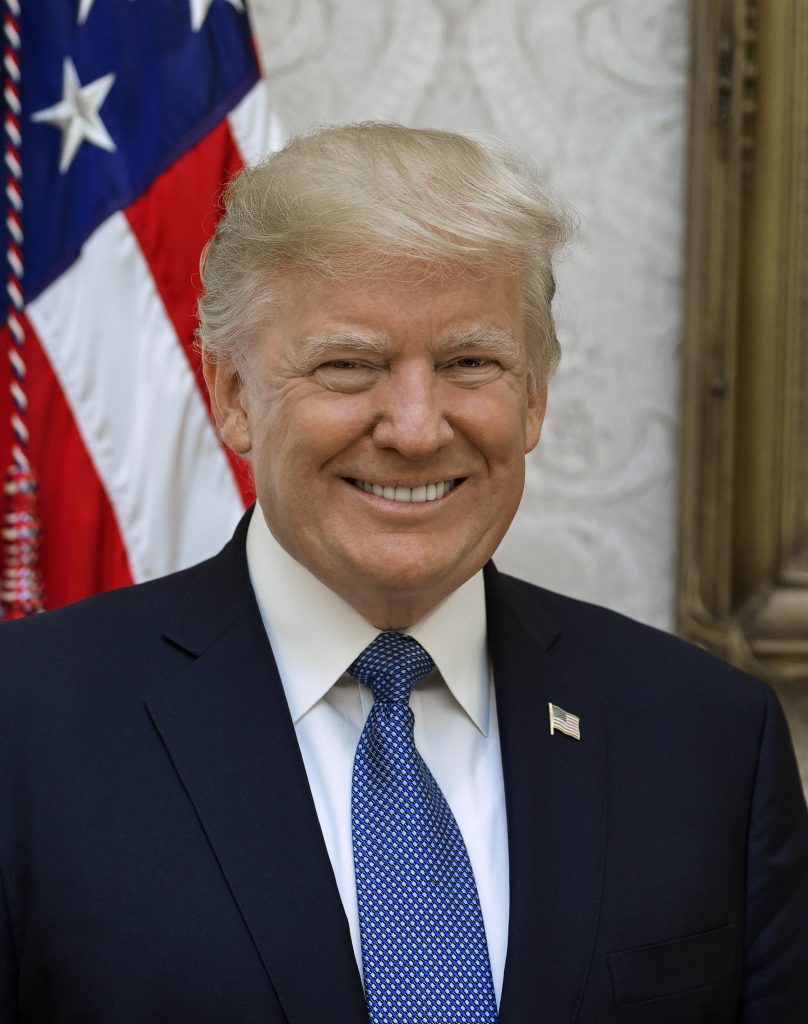
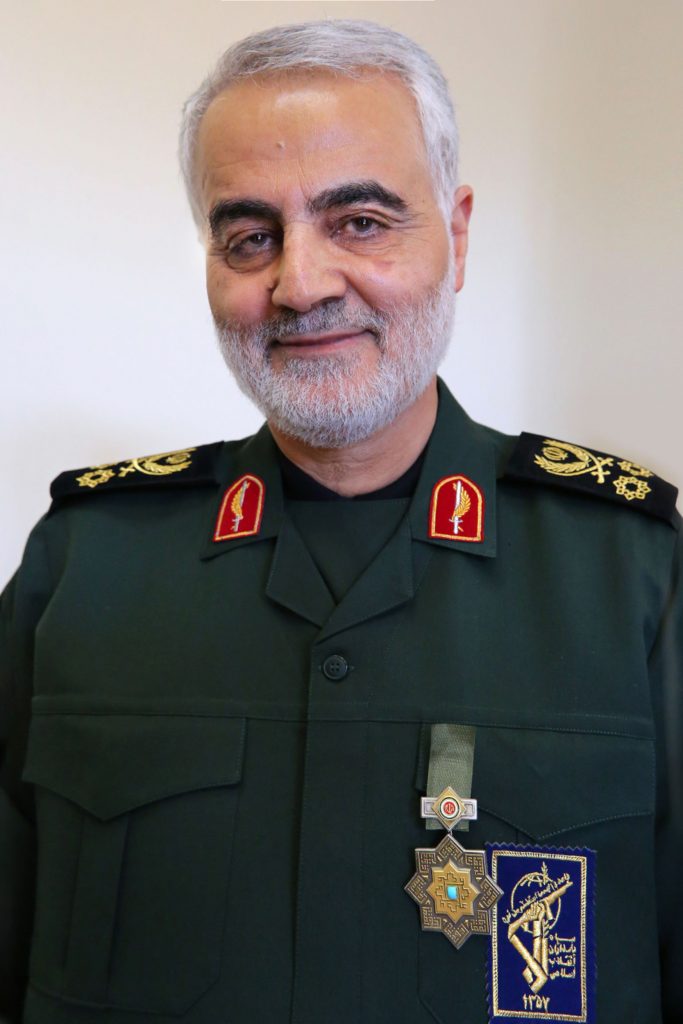
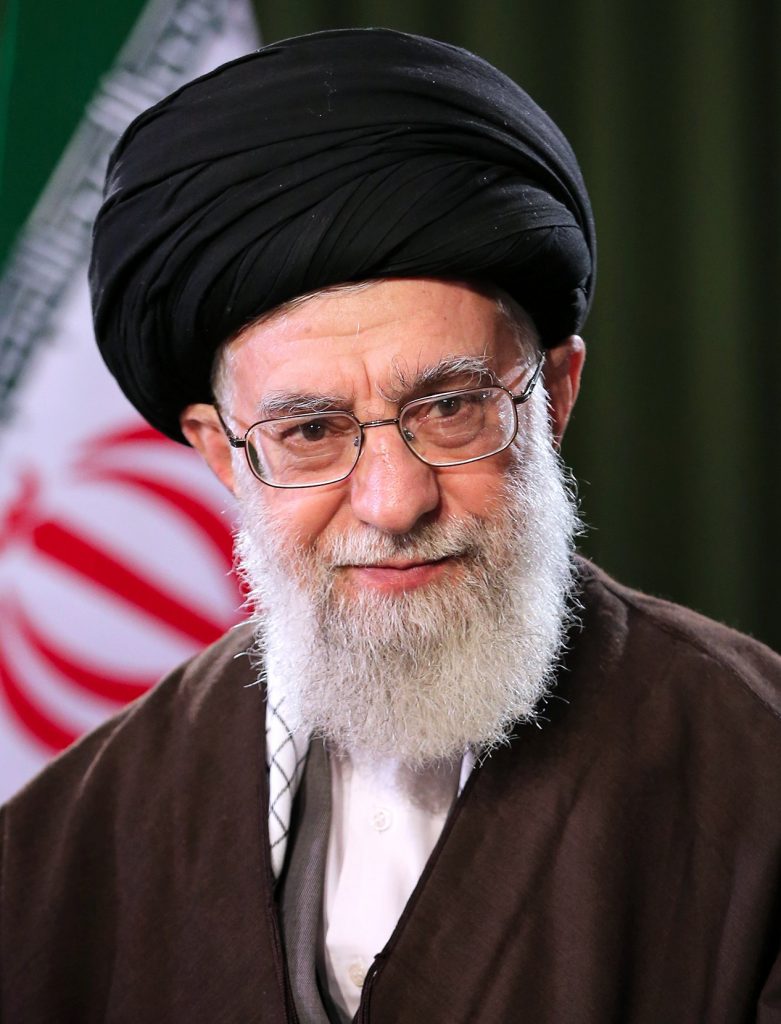
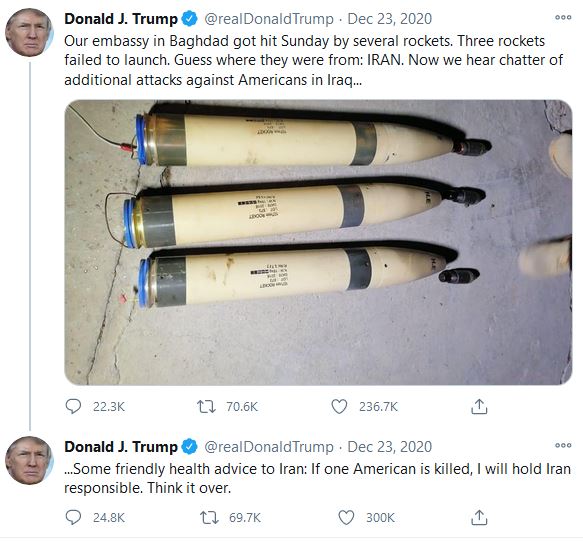

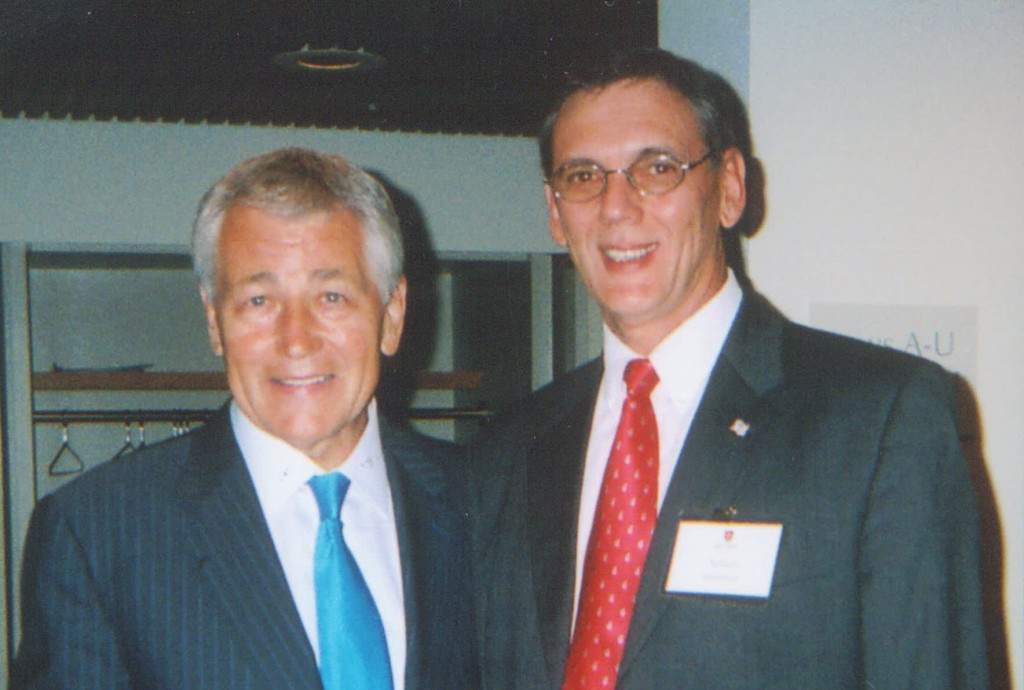
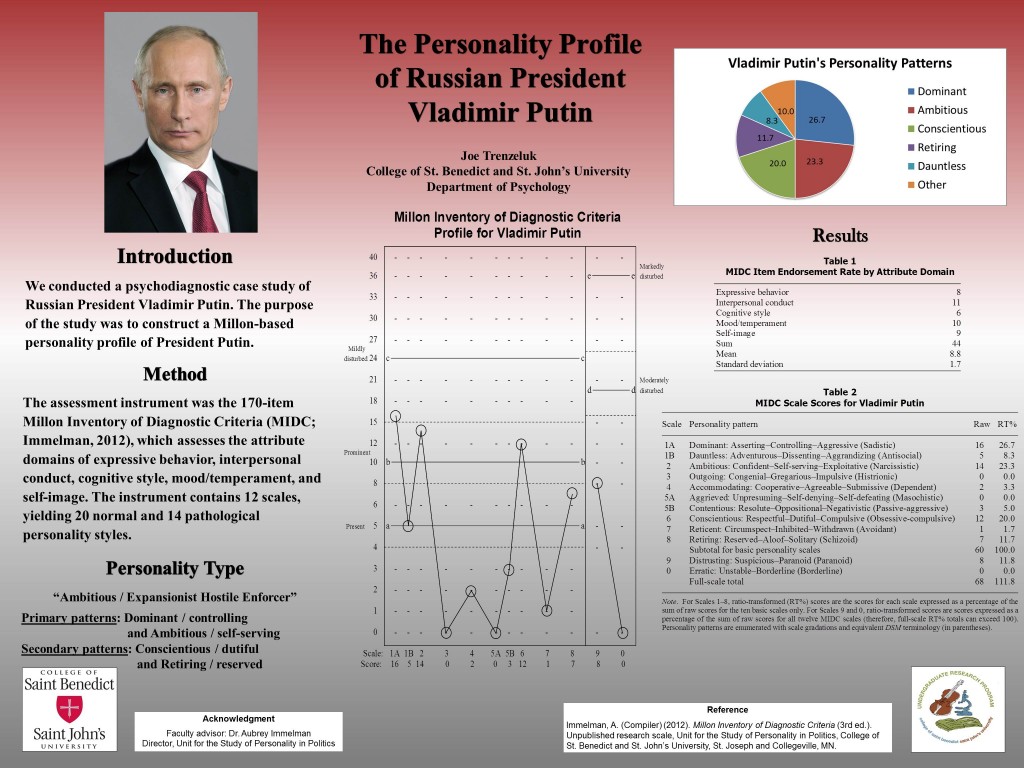
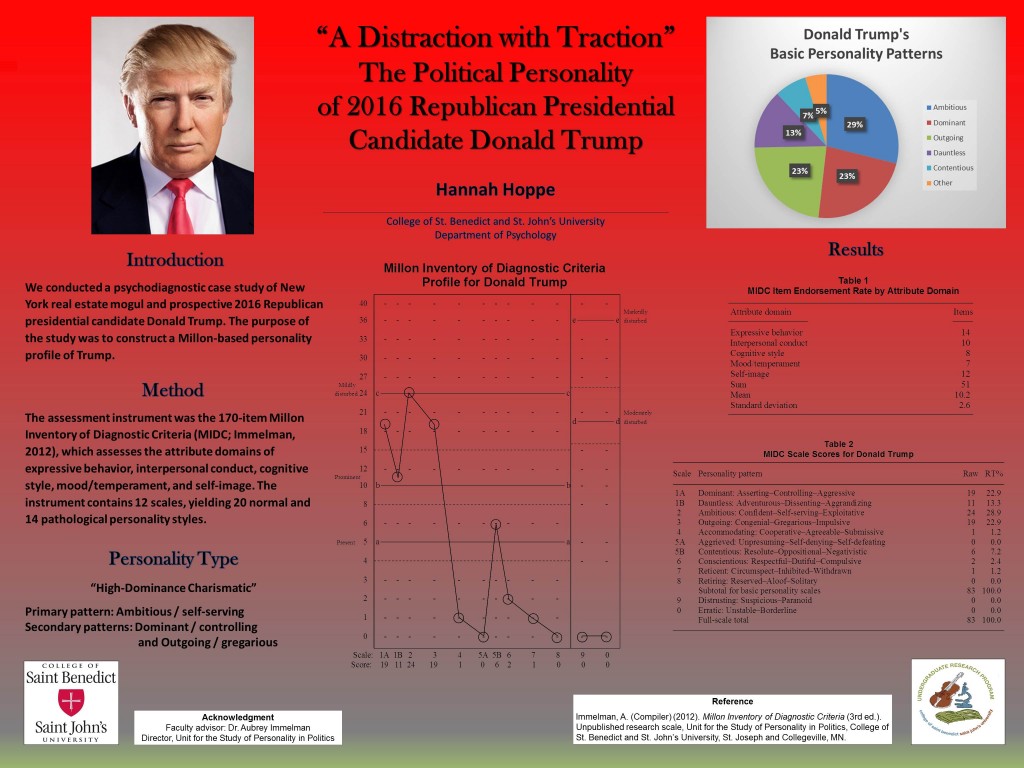
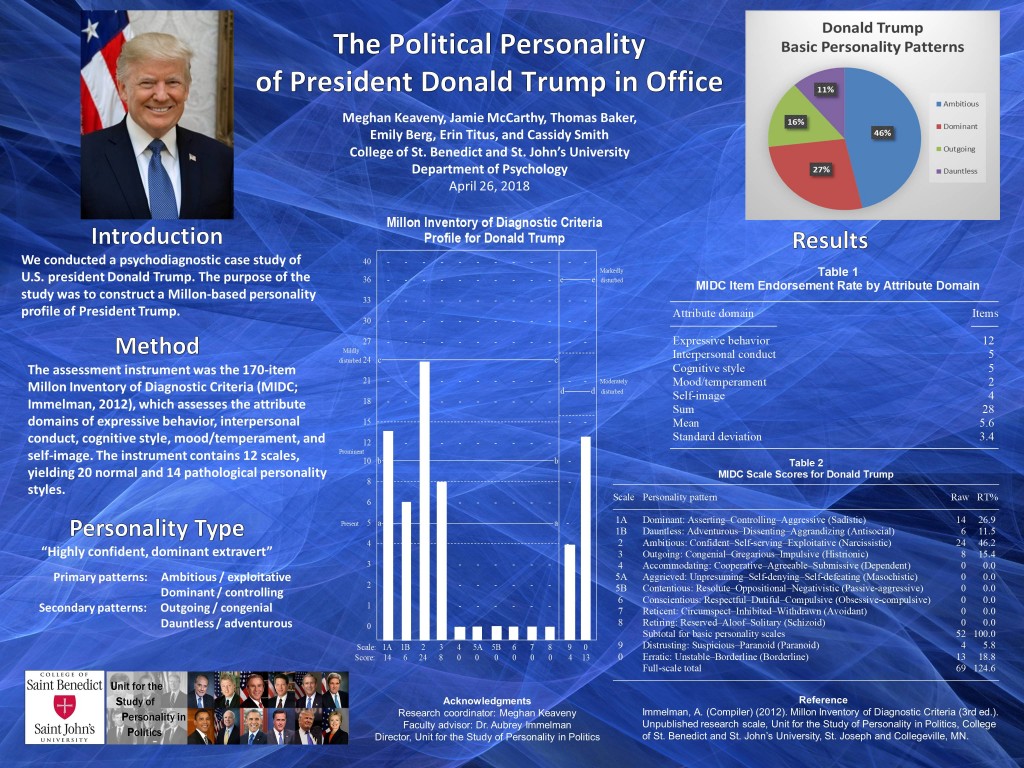
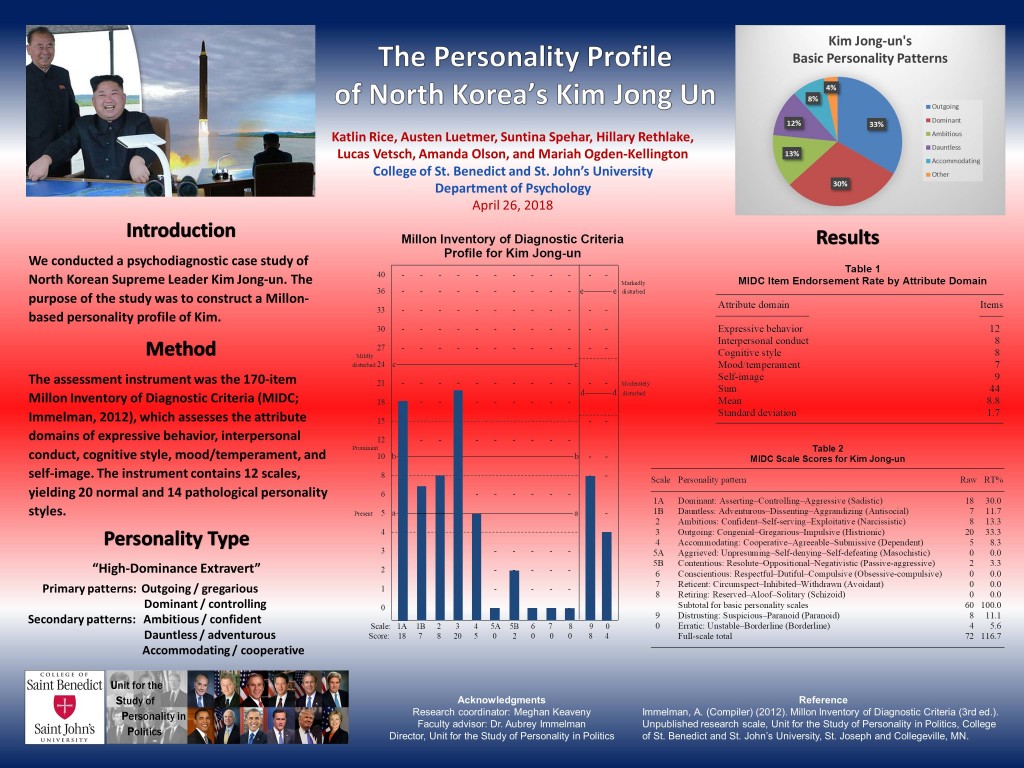
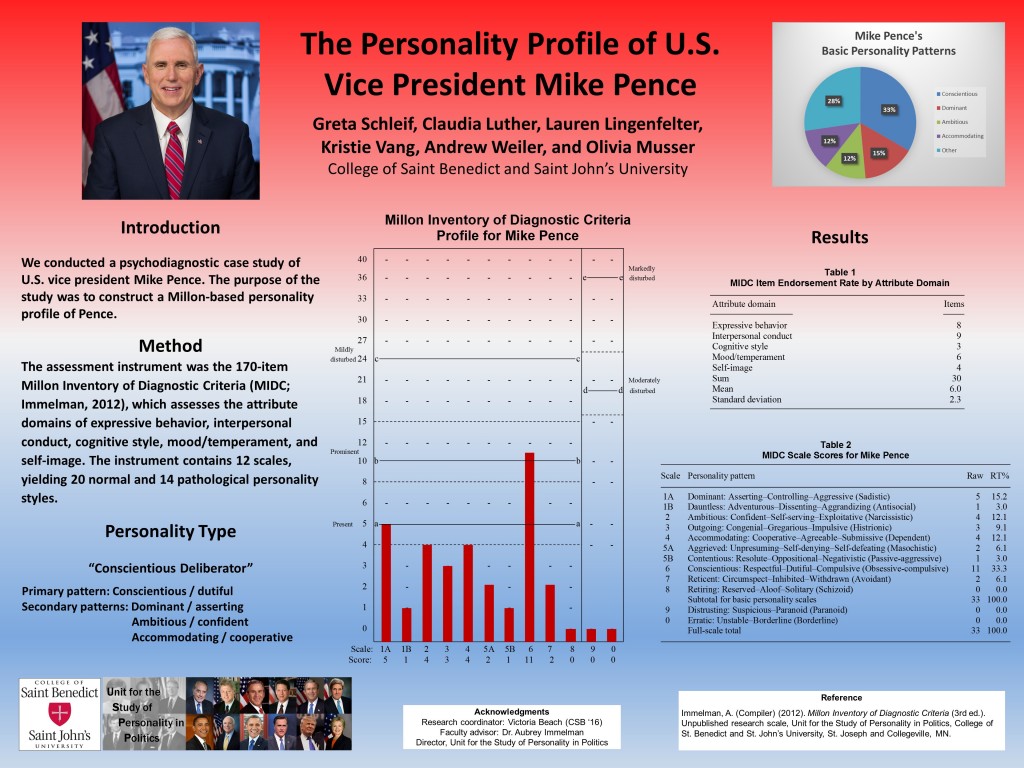



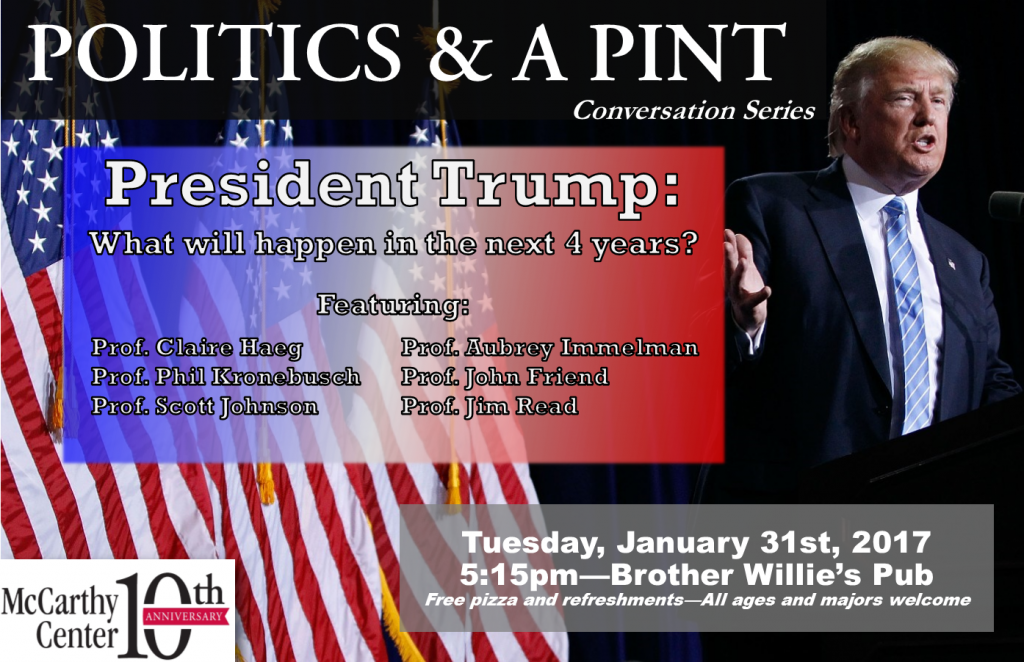









Follow Aubrey Immelman